Dominic Raab has said it is too early to lift the lockdown measures in place to combat coronavirus, telling the public: “We’re not done yet, we must keep going.”
The foreign secretary, who is deputising for Boris Johnson while the prime minister is in hospital, confirmed that the three-week lockdown would probably be extended next week as the peak of the outbreak had not been reached.
As the death toll rose by 881 on the previous day, Mr Raab urged people to continue to observe the strict measures over the Easter bank holiday weekend amid fears people would take advantage of the good weather to go out.
Download the new Independent Premium app
Sharing the full story, not just the headlines
He told the daily Downing Street press conference: “It’s been almost three weeks and we’re starting to see the impact of the sacrifices we’ve all made.
“But the deaths are still rising and we haven’t yet reached the peak of the virus. So it’s still too early to lift the measures that we put in place.
“We must stick to the plan and we must continue to be guided by the science.”
Mr Raab, who chaired a meeting of the government’s emergency Cobra committee on Thursday, thanked everyone for staying indoors but urged the public to keep sticking to the rules.
Early signs suggest the lockdown measures are having an impact but “it’s too early to say that conclusively”, Mr Raab said. The restrictions are being kept under review, the minister said.
He added: “We don’t expect to be able to say more on this until the end of next week.
“The measures will have to stay in place until we’ve got the evidence that clearly shows we’ve moved beyond the peak.”
He went on: “Let’s not undo the gains we’ve made, let’s not waste the sacrifices so many people have made.
“We mustn’t give the coronavirus a second chance to kill more people and to hurt our country.”
The latest news on Brexit, politics and beyond direct to your inbox
His comments mean there is no end in sight for stringent lockdown measures, which the prime minister said would be reviewed three weeks after their introduction, which would have been on Monday.
It also comes after the Welsh government announced it would not “throw away the gains we have made” by lifting restrictions immediately after Easter.
Sir Patrick Vallance, the government’s chief scientific adviser, said the evidence showed that social-distancing measures were “making a big difference” and warned that the NHS could have been “overrun” without the restrictions.
He said the peak could still be weeks away as deaths could continue to increase for “up to two weeks after the intensive care picture improves”.
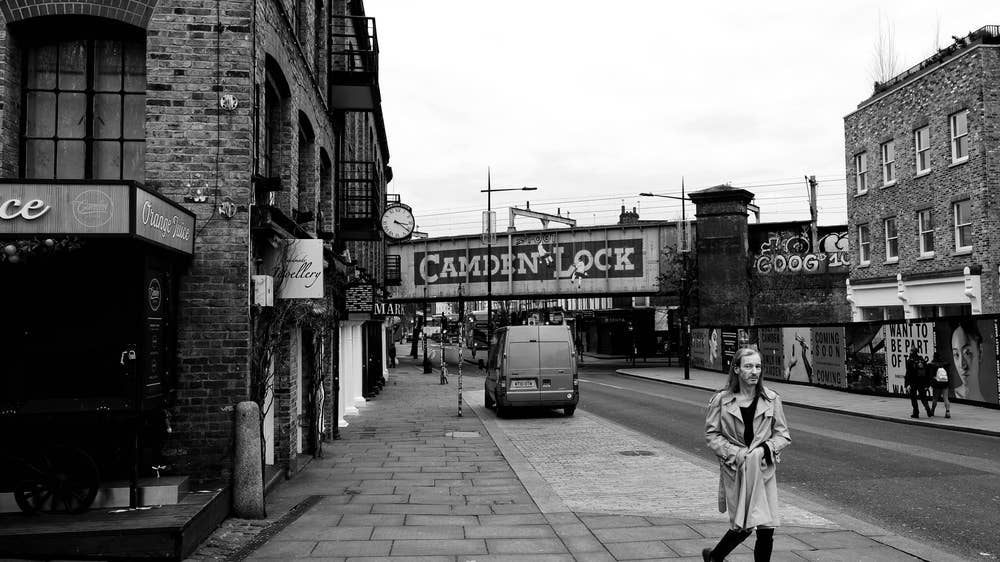
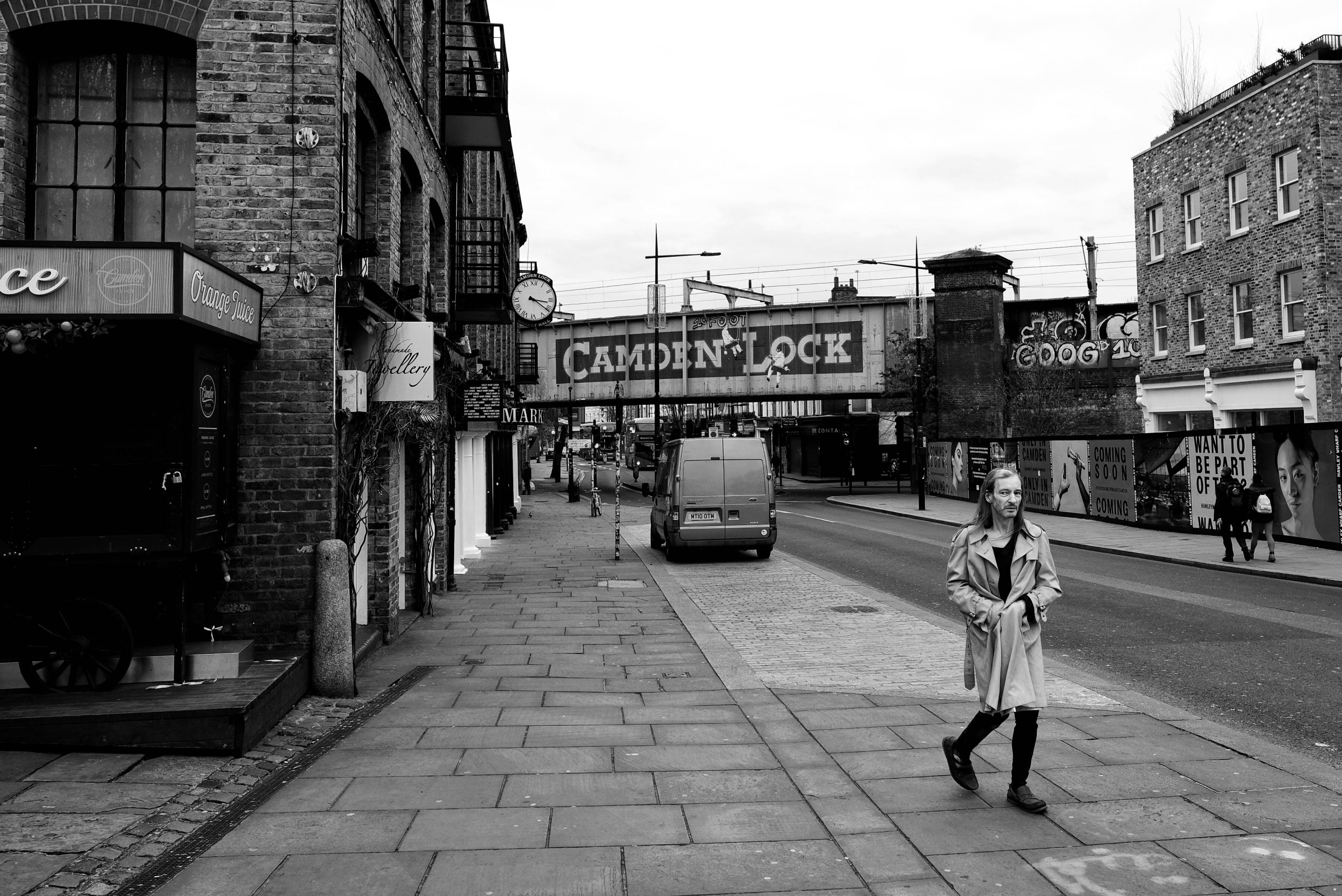
1/29
A man walks down a deserted Camden High Street
Photos Angela Christofilou
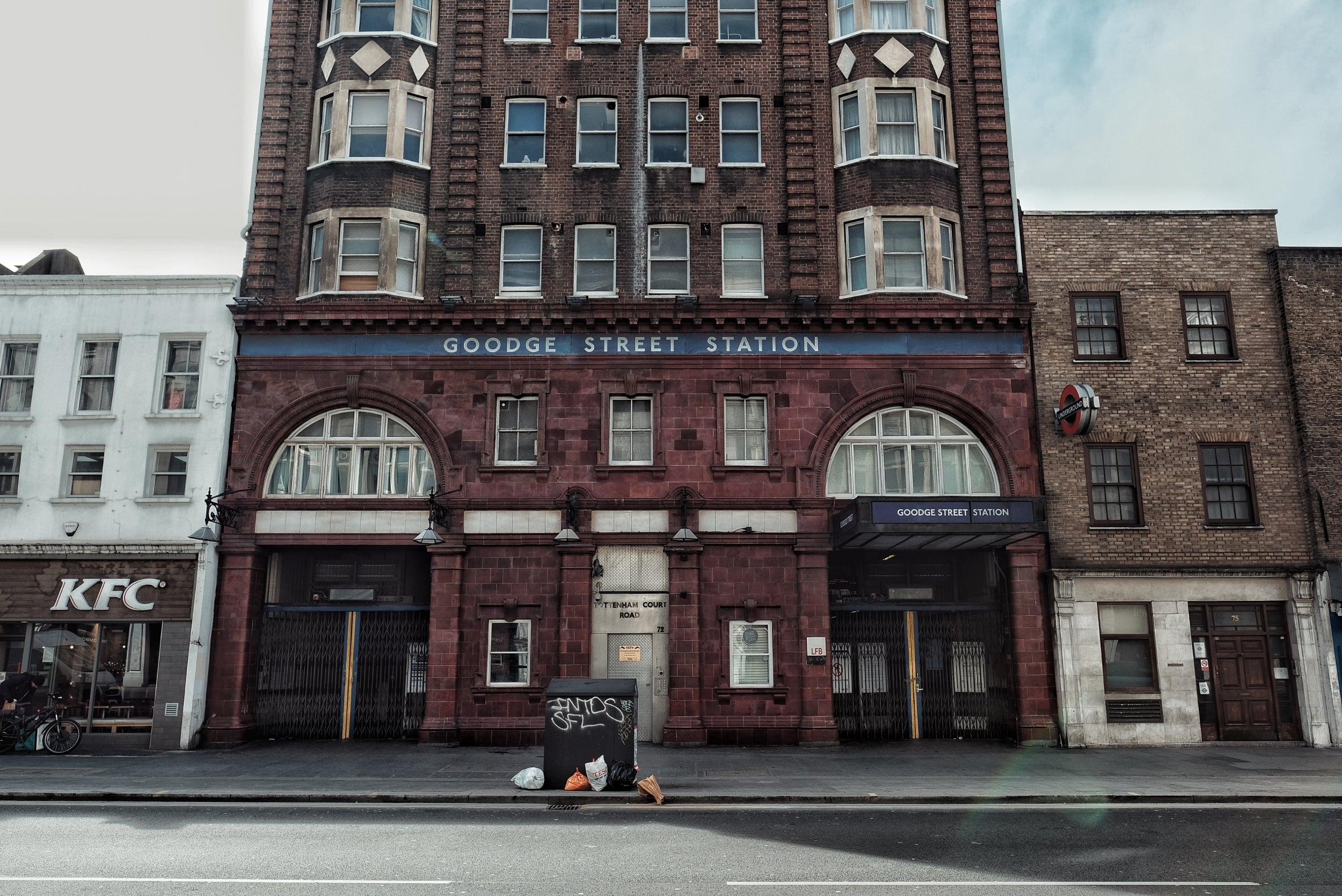
2/29
Goodge Street Station is one of the many stations closed to help reduce the spread
Angela Christofilou
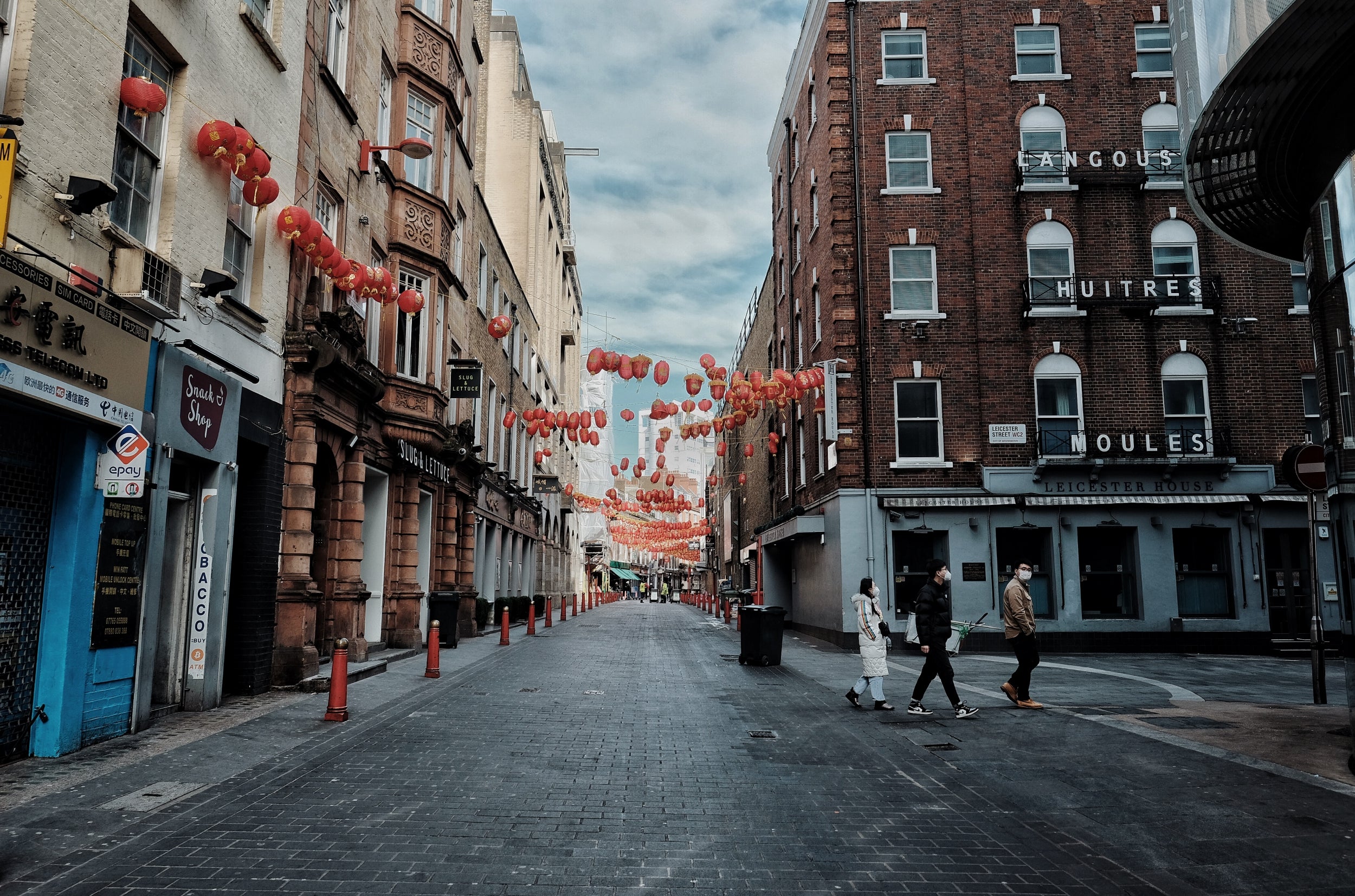
3/29
An empty street in the heart of Chinatown
Angela Christofilou
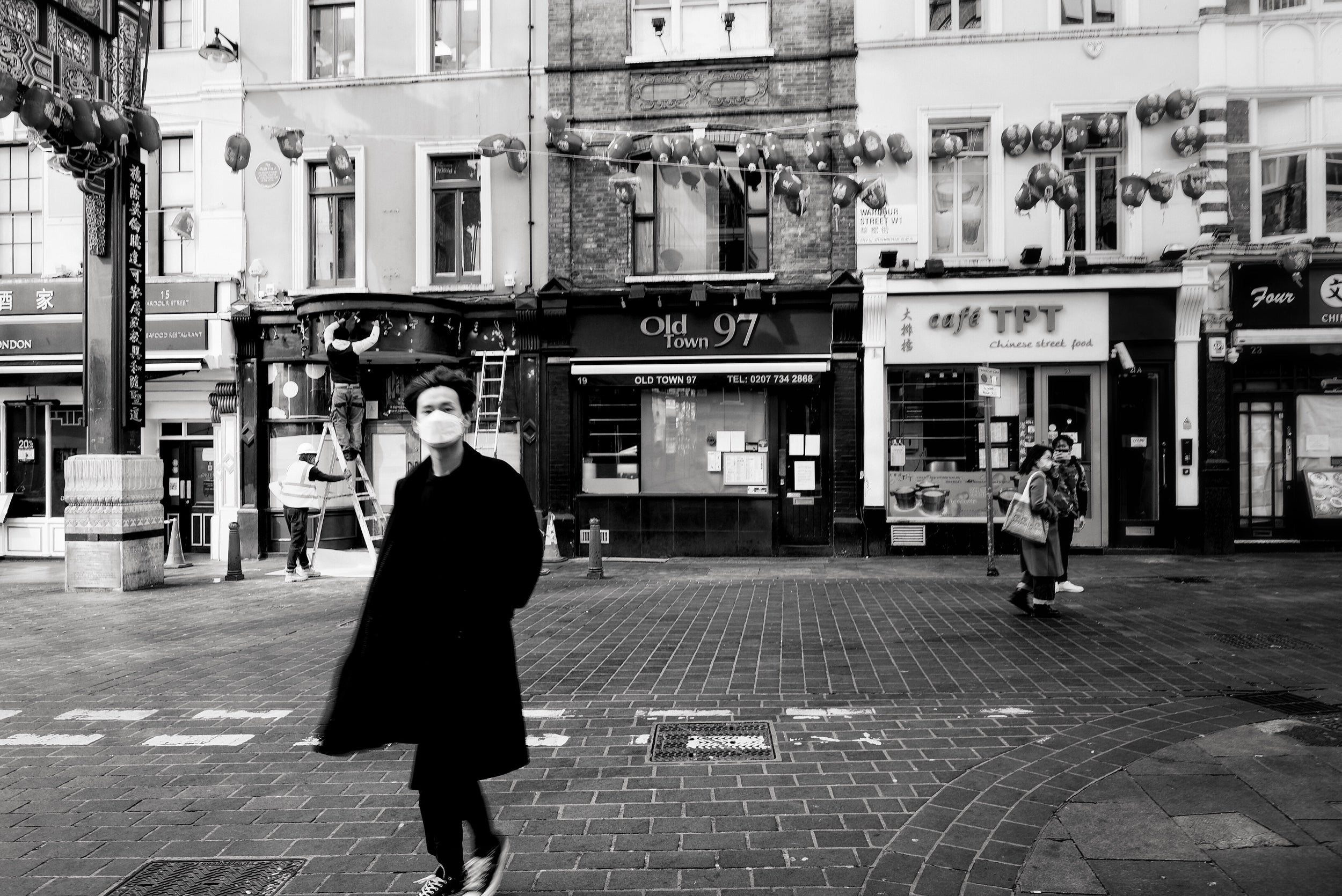
4/29
People in masks in Chinatown a day after the lockdown
Angela Christofilou
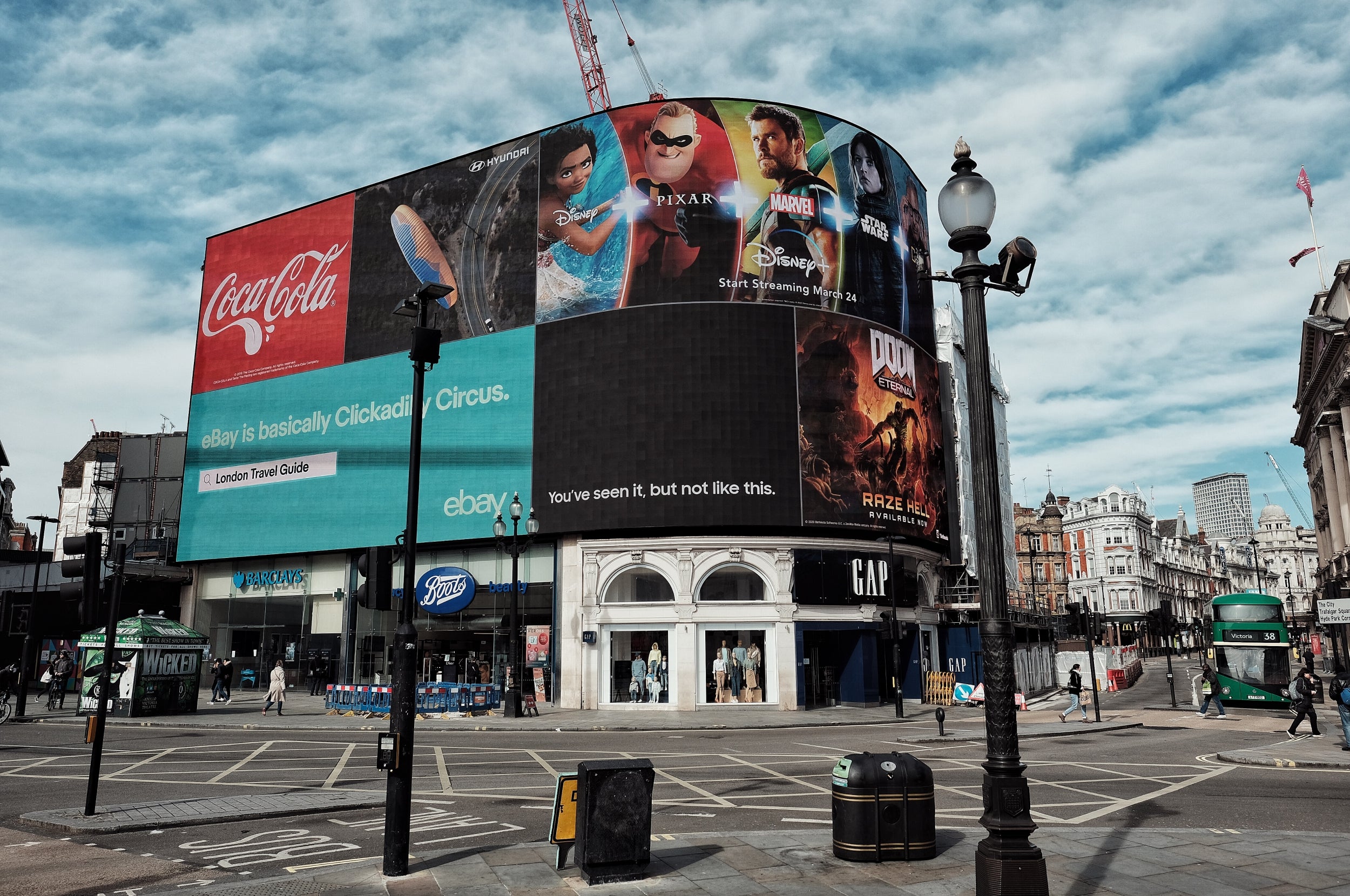
5/29
A near-empty Piccadilly Circus during the first week of lockdown
Angela Christofilou
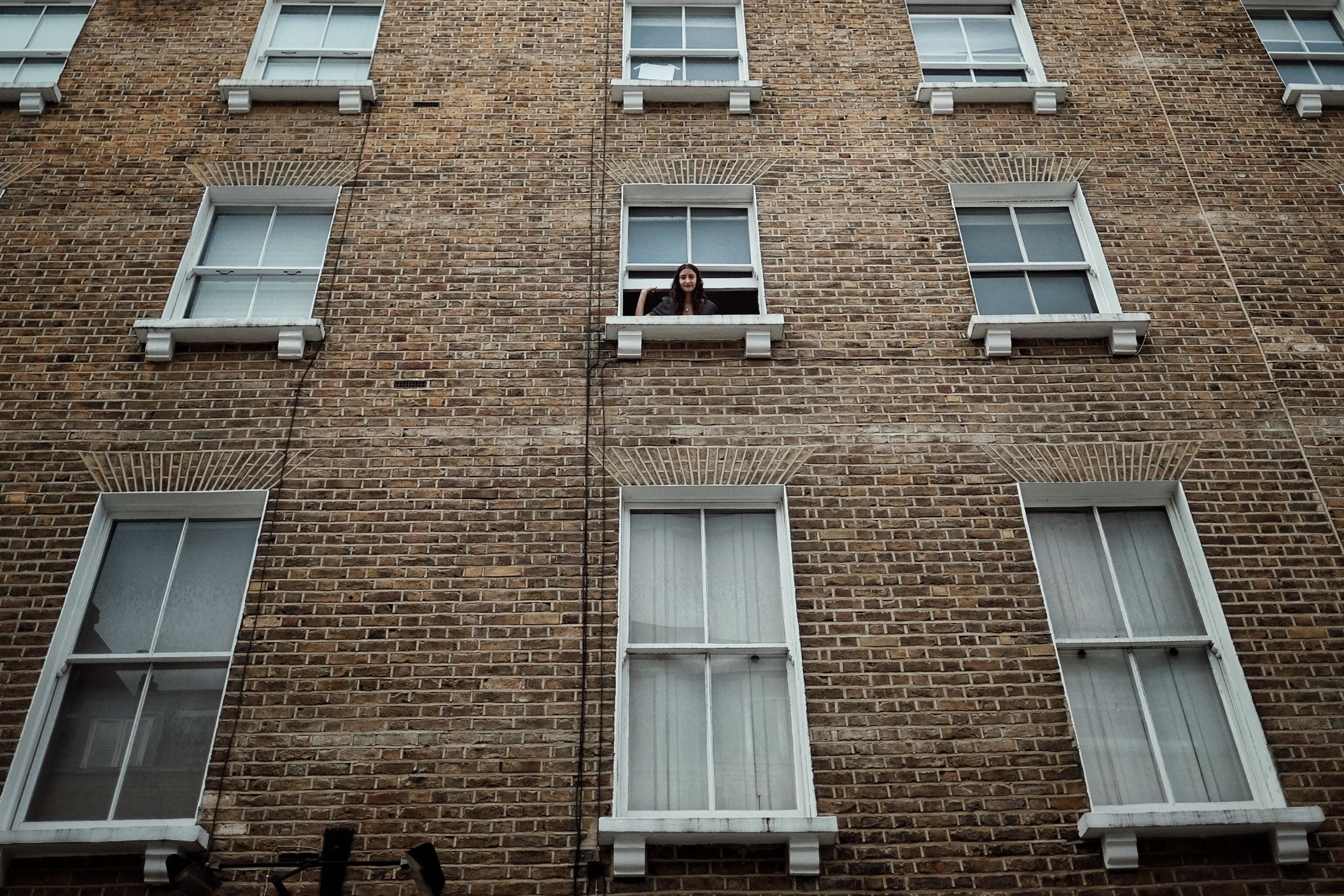
6/29
Sonja, my neighbour, who I photographed while taking a short walk. It was nice to briefly chat even from a distance
Angela Christofilou
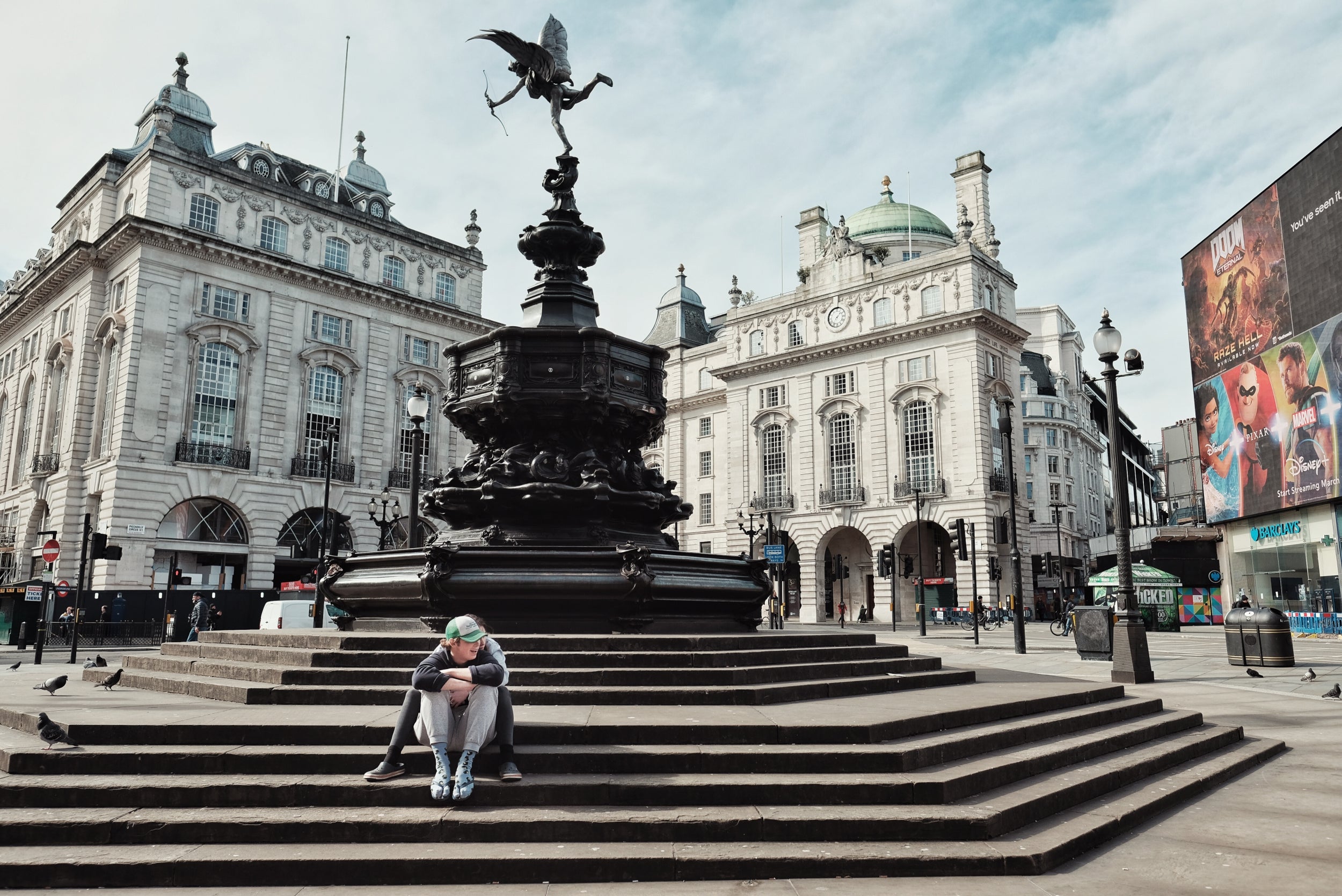
7/29
A couple sit on the empty steps of the statue Eros in Piccadilly Circus
Angela Christofilou
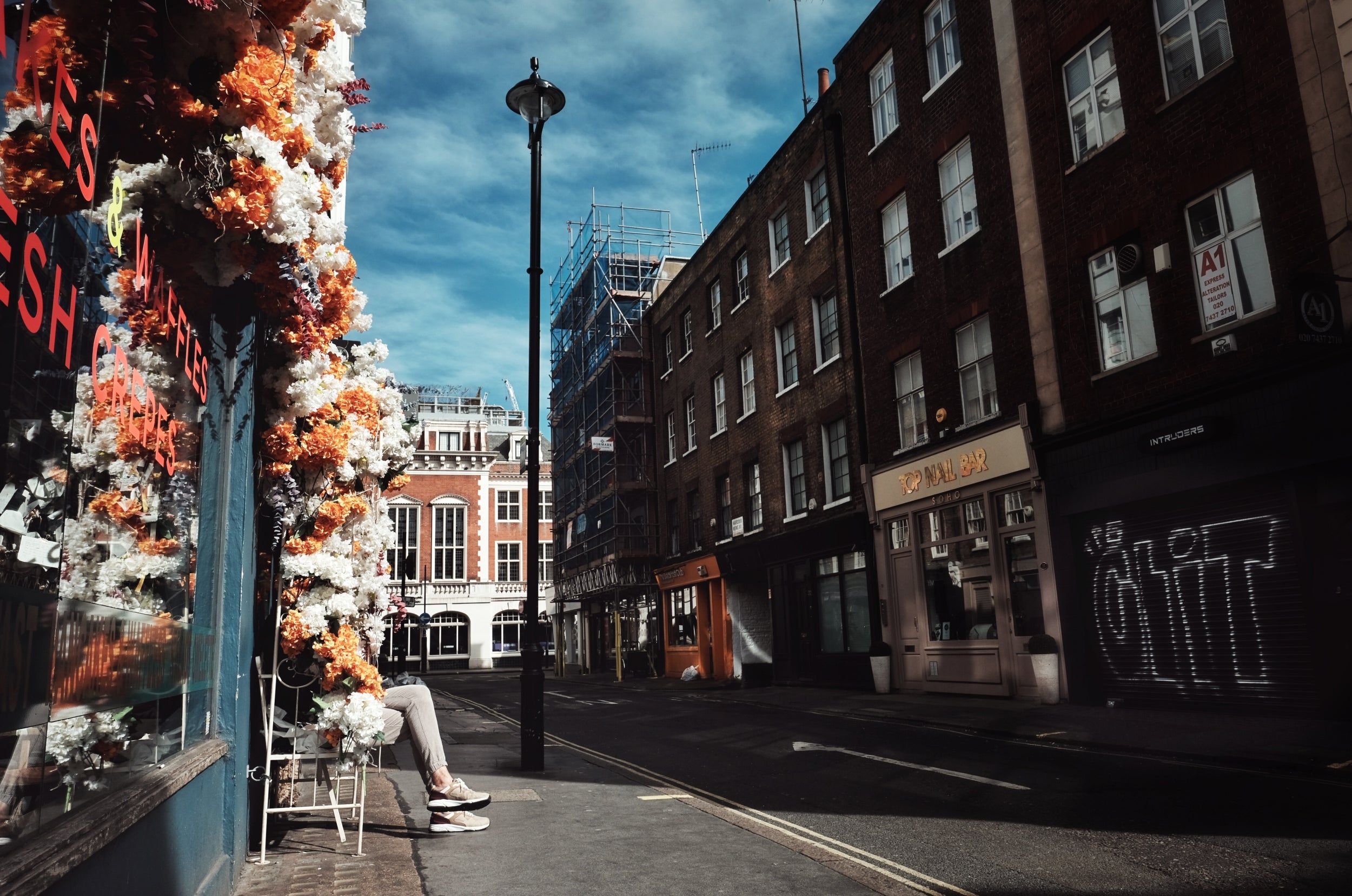
8/29
Making sure I stay two-meters apart – D’Arblay Street, Soho
Angela Christofilou
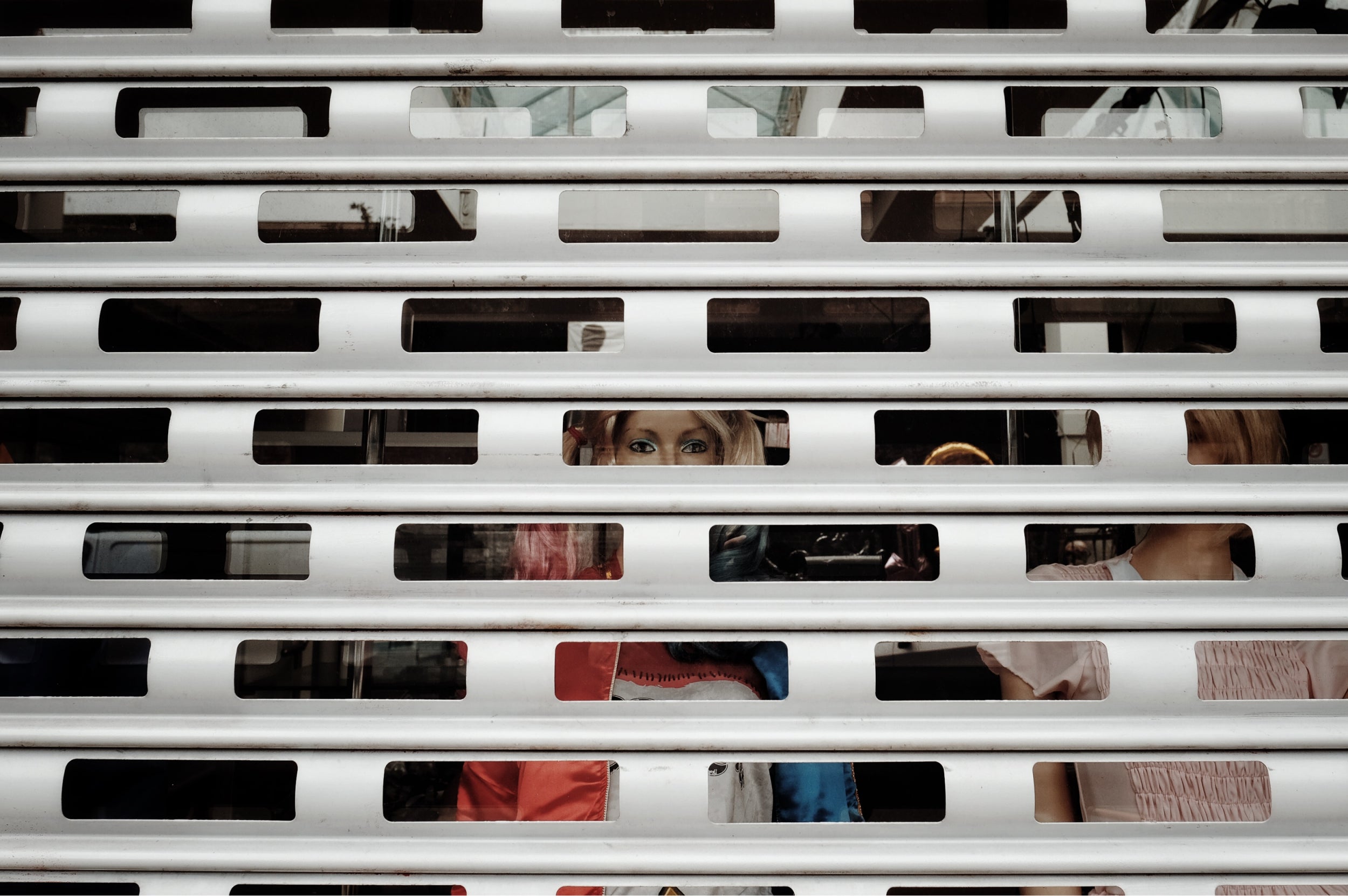
9/29
A mannequin behind a shop window. UK stores have closed until further notice
Angela Christofilou
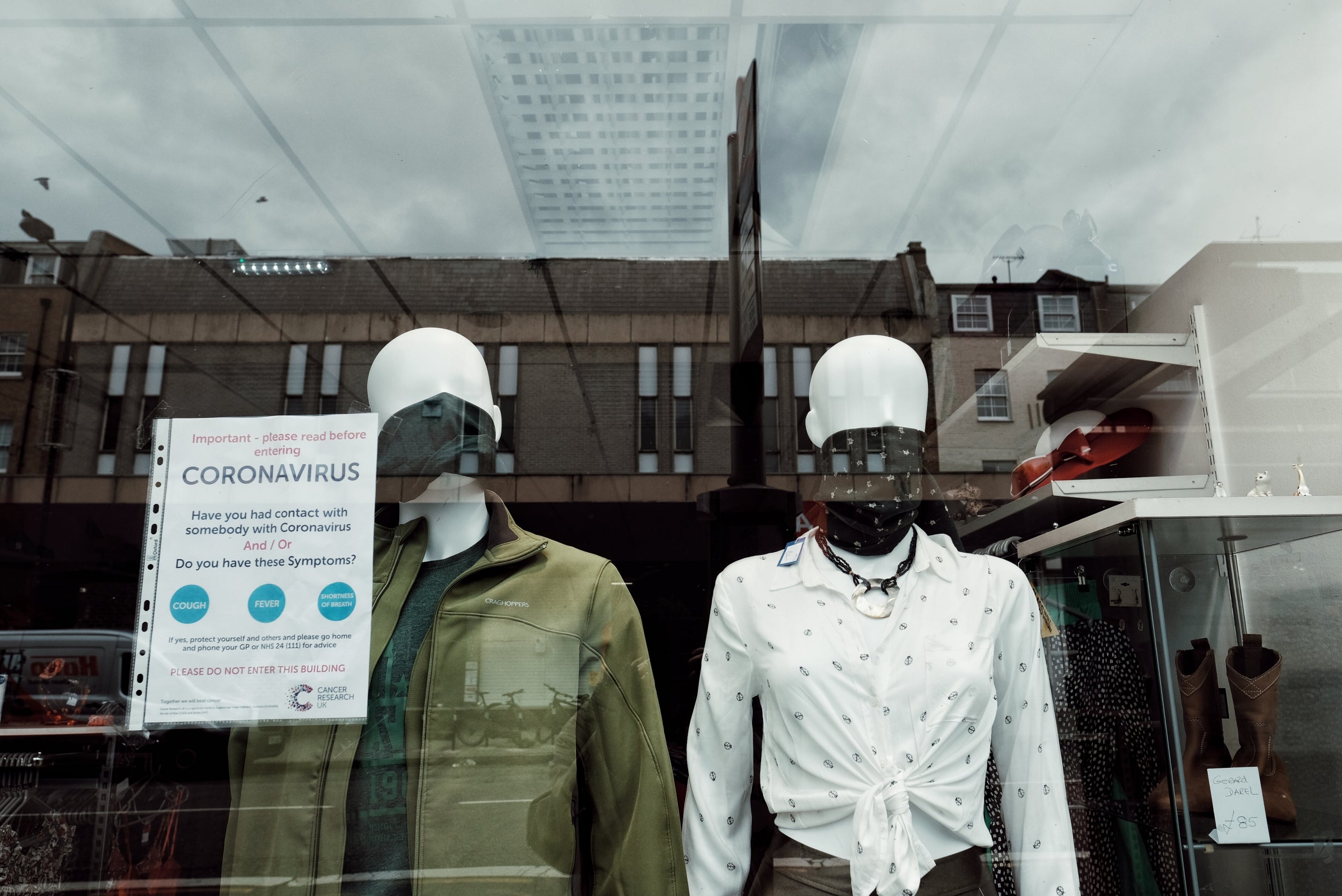
10/29
A notice displayed on a shop window in Camden
Angela Christofilou
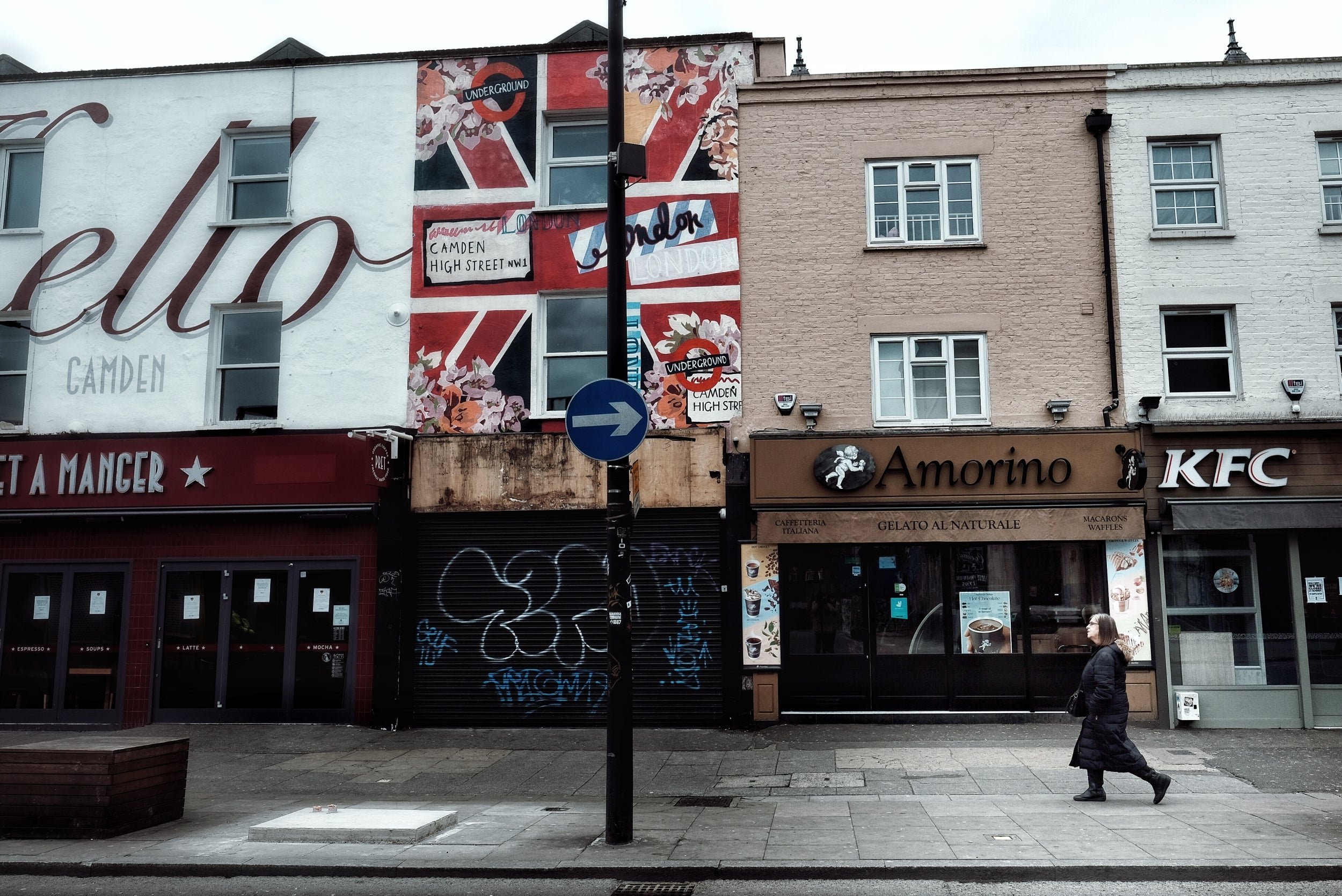
11/29
As part of the lockdown, all non-essential shops have been ordered to close.Image from Camden High Street
Angela Christofilou
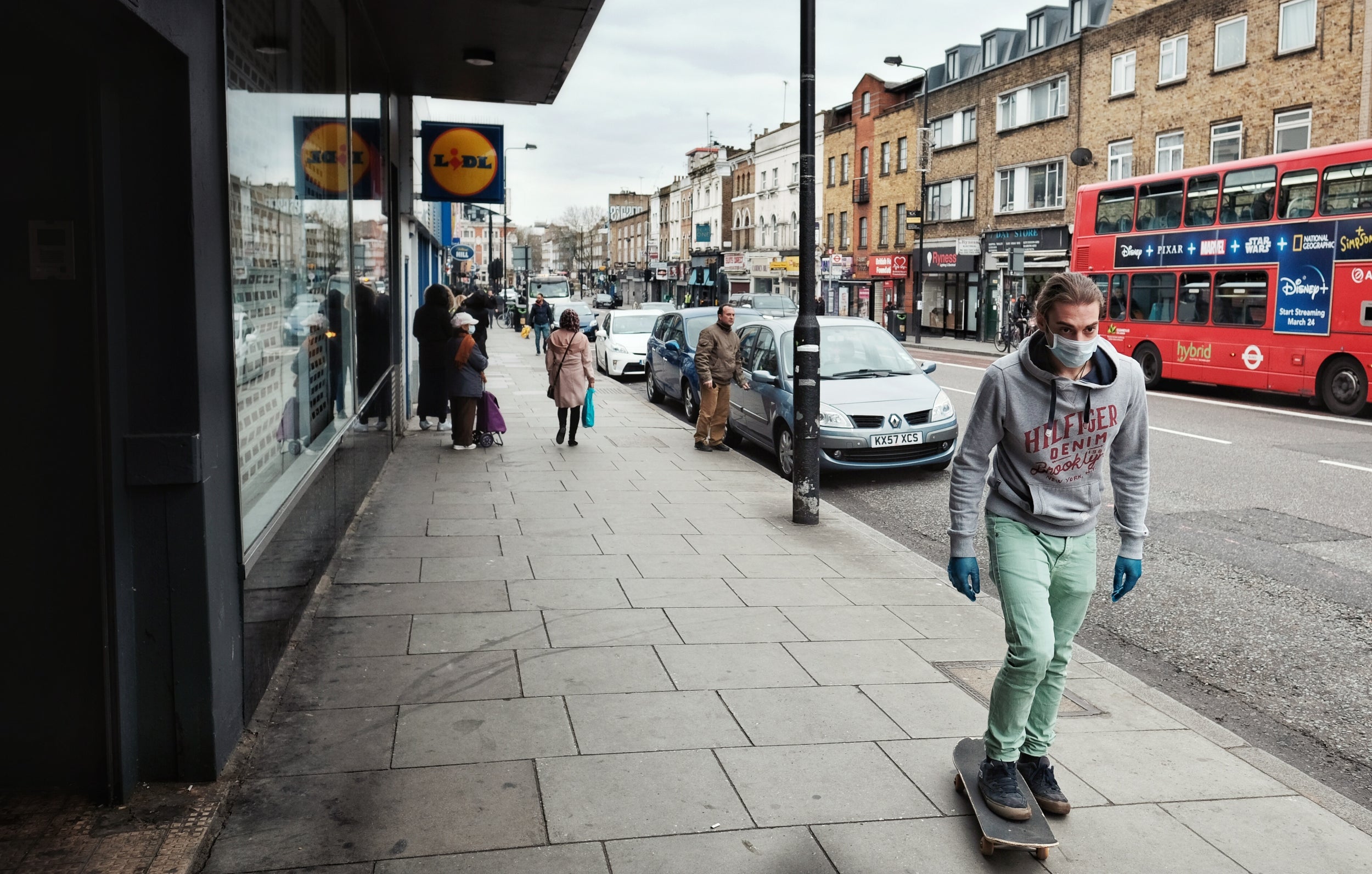
12/29
A skateboarder wearing a mask utilises his exercise allowance in the Camden area
Angela Christofilou
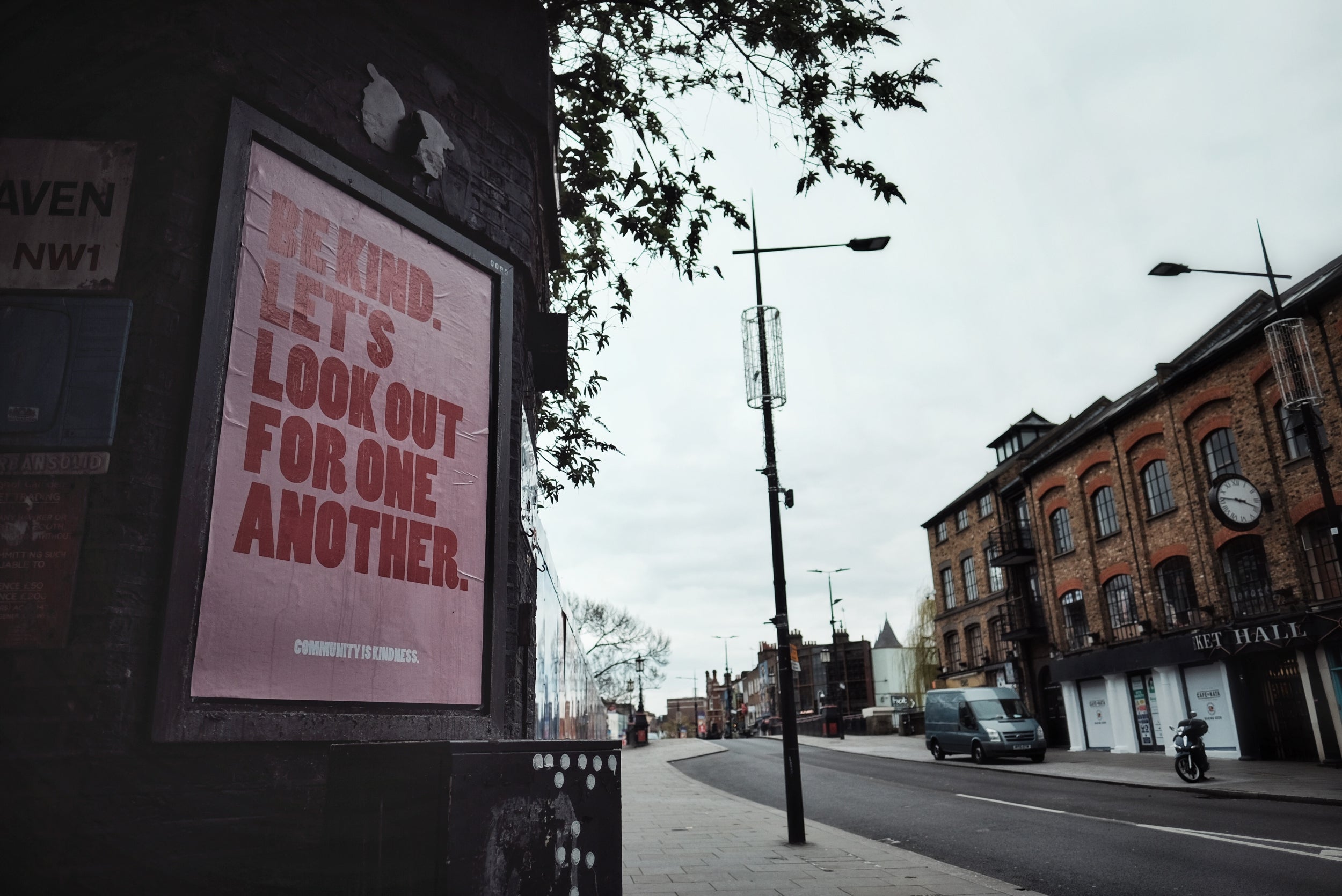
13/29
Communities have been coming together in a time of need
Angela Christofilou
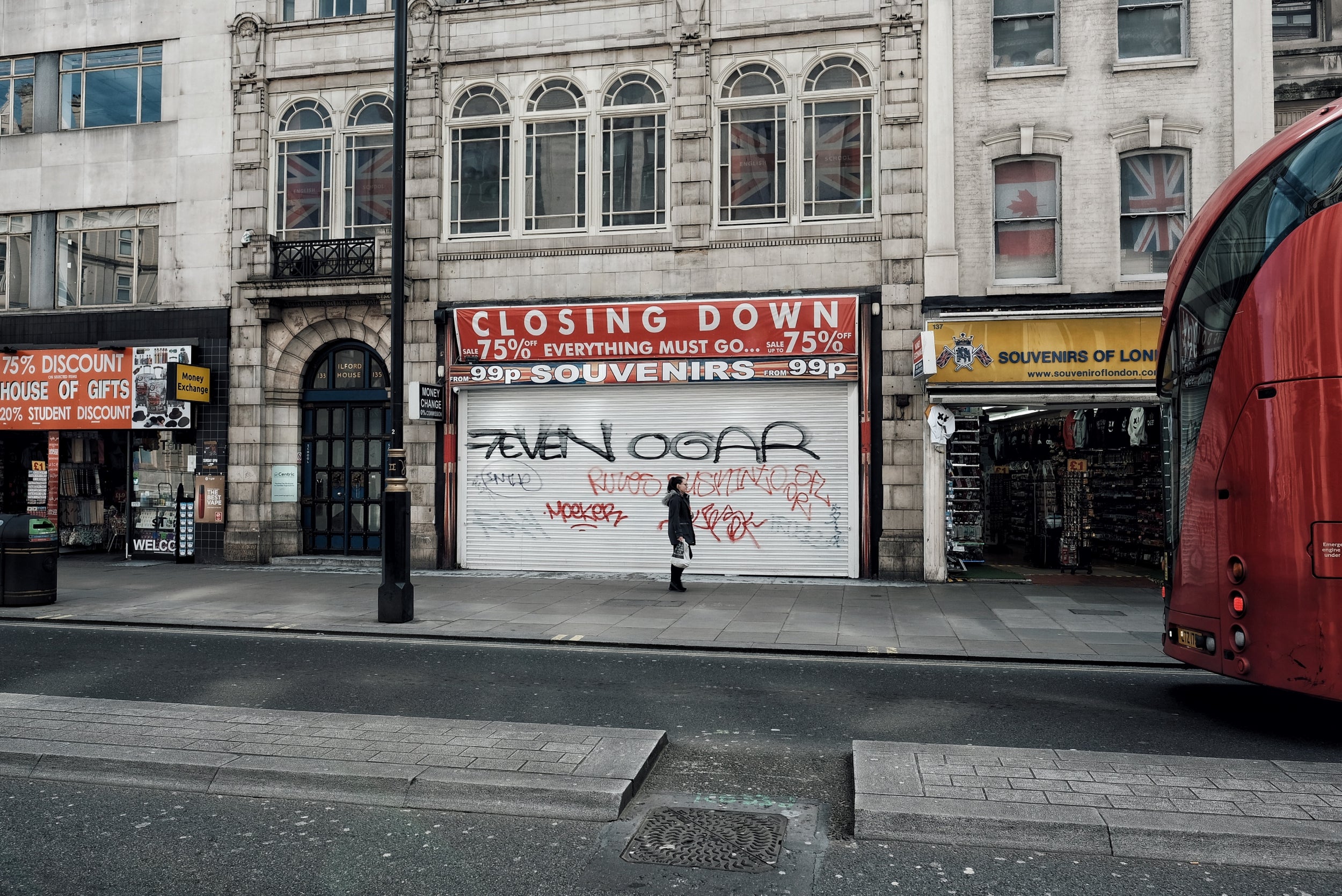
14/29
A woman stands alone in a deserted Oxford Street. Up until a few weeks ago, on average, half a million people visited the street per day
Angela Christofilou
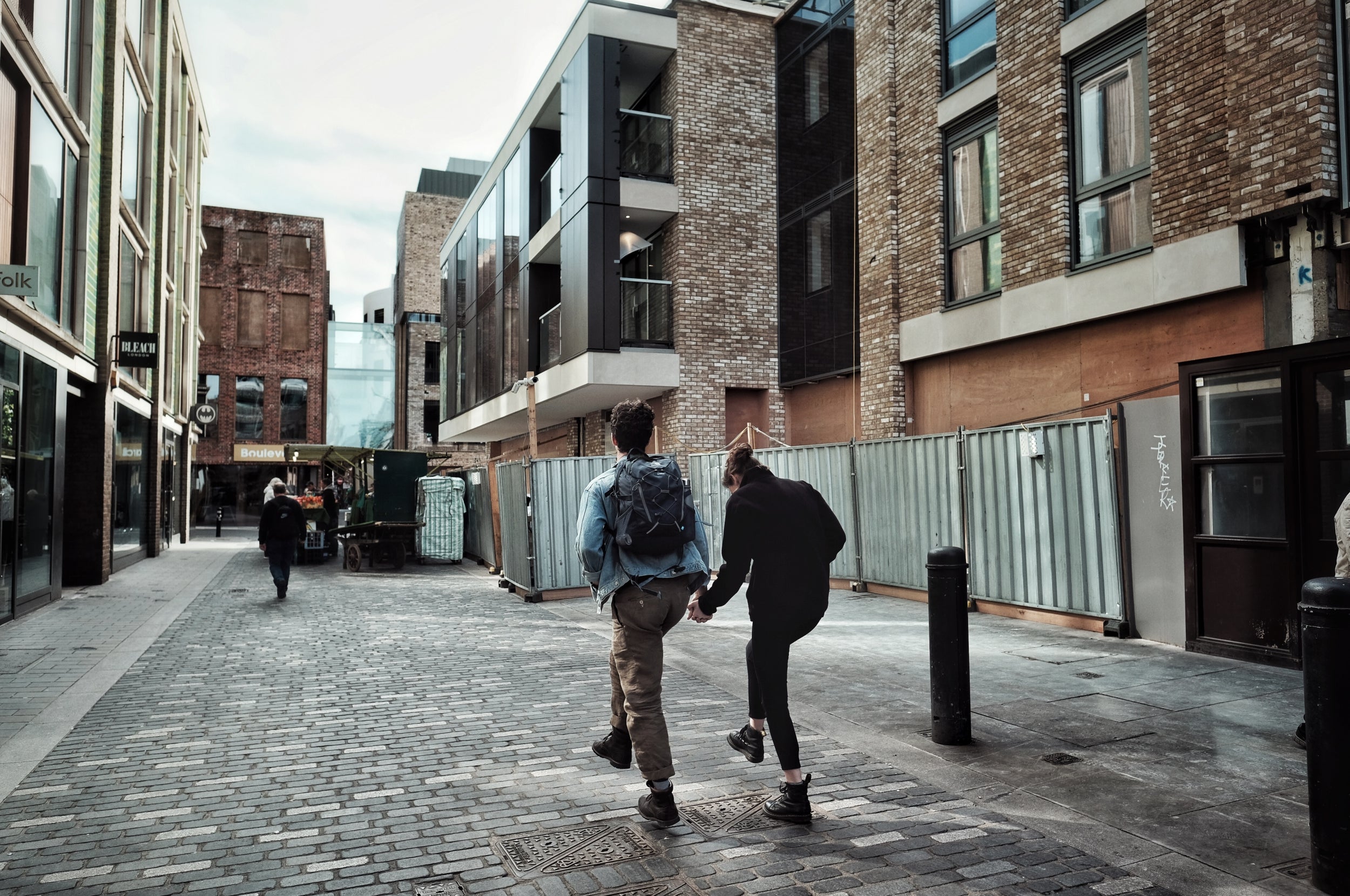
15/29
A couple walk hand in hand down a street in Soho, a day before the stricter lockdown was announced
Angela Christofilou
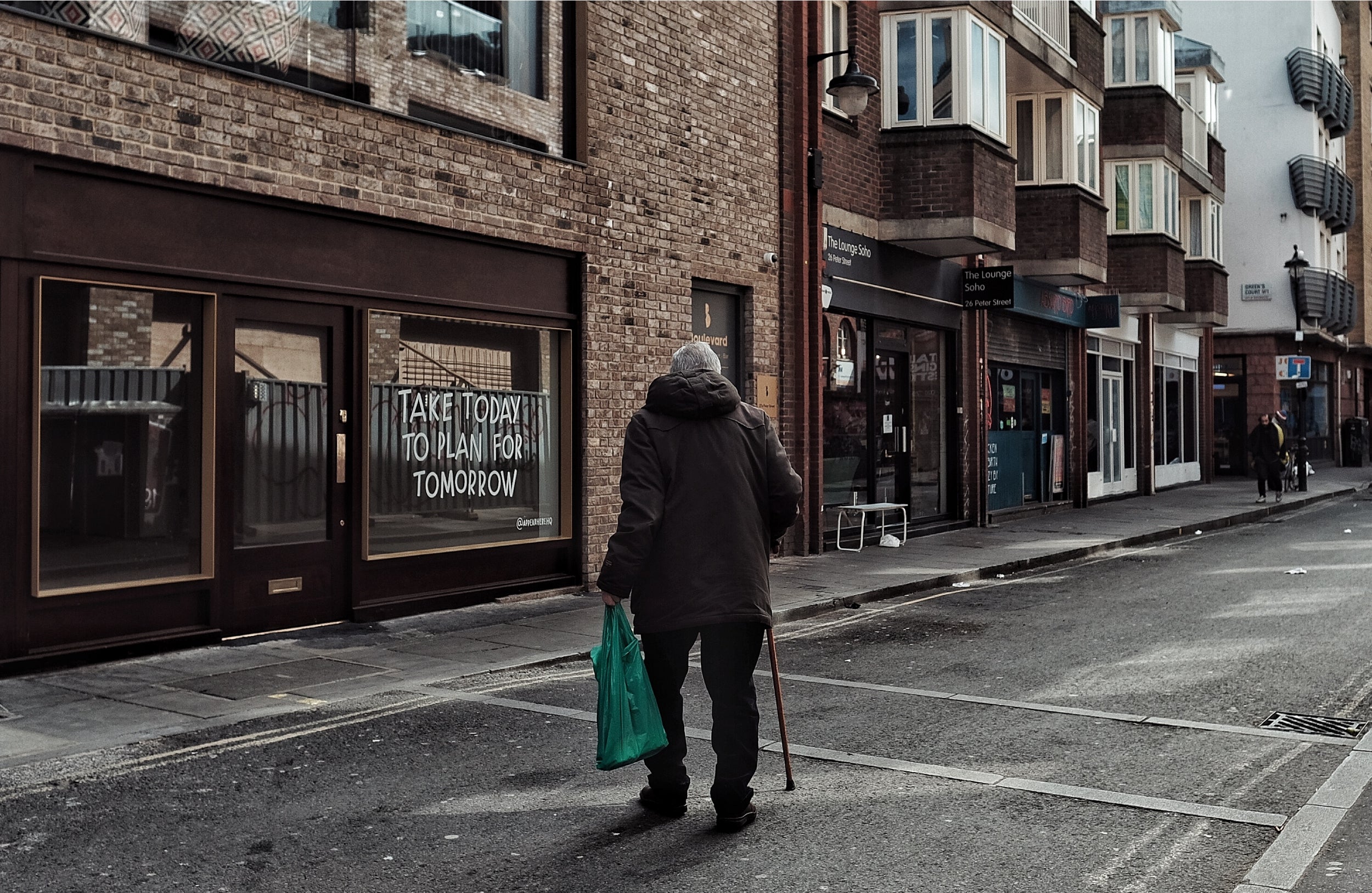
16/29
During the first week of March, shoppers focused on stockpiling necessities ahead of a countrywide lockdown
Angela Christofilou
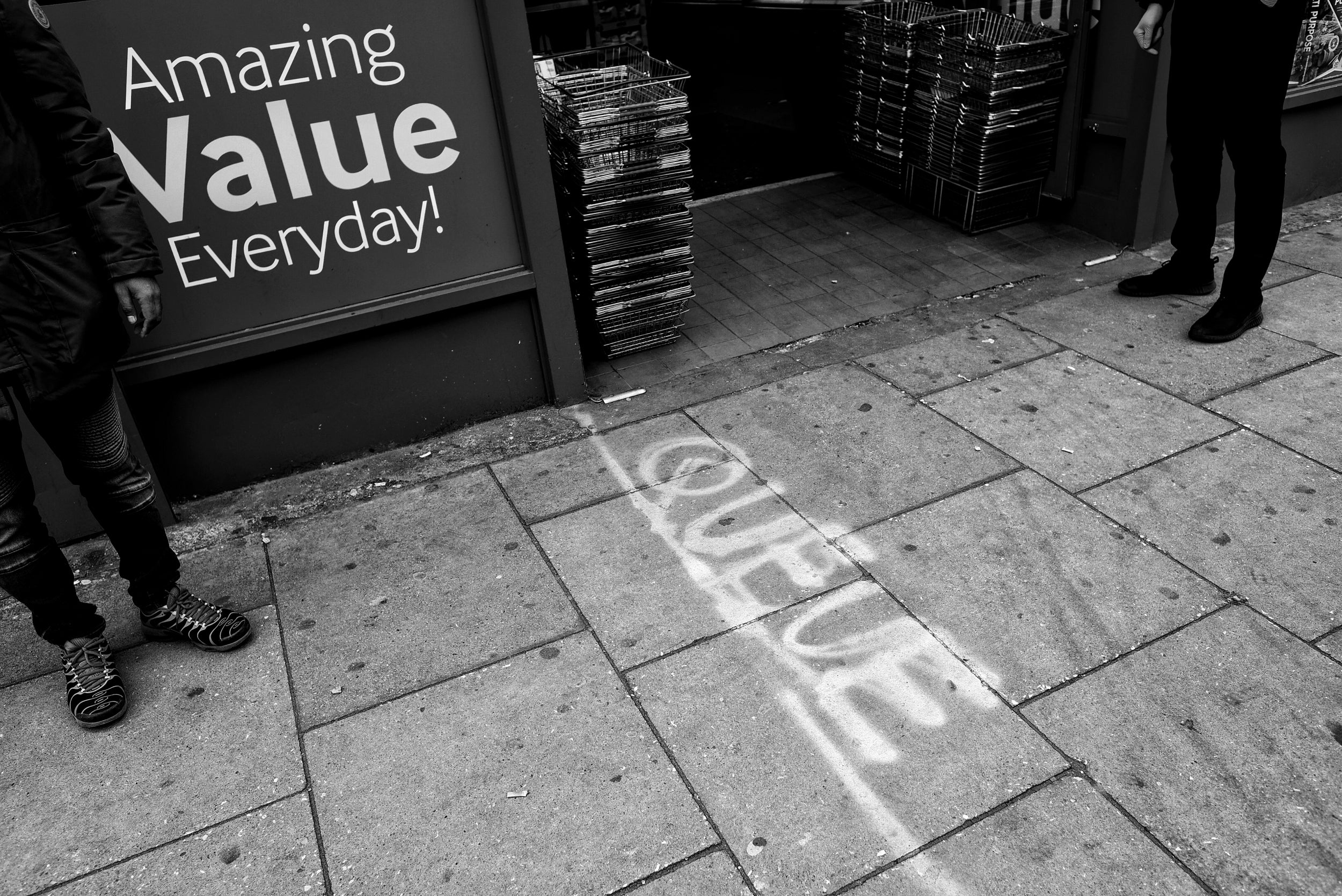
17/29
Many supermarkers are operating a queuing system to make sure only a limited amount of customers are allowed in at anyone time
Angela Christofilou
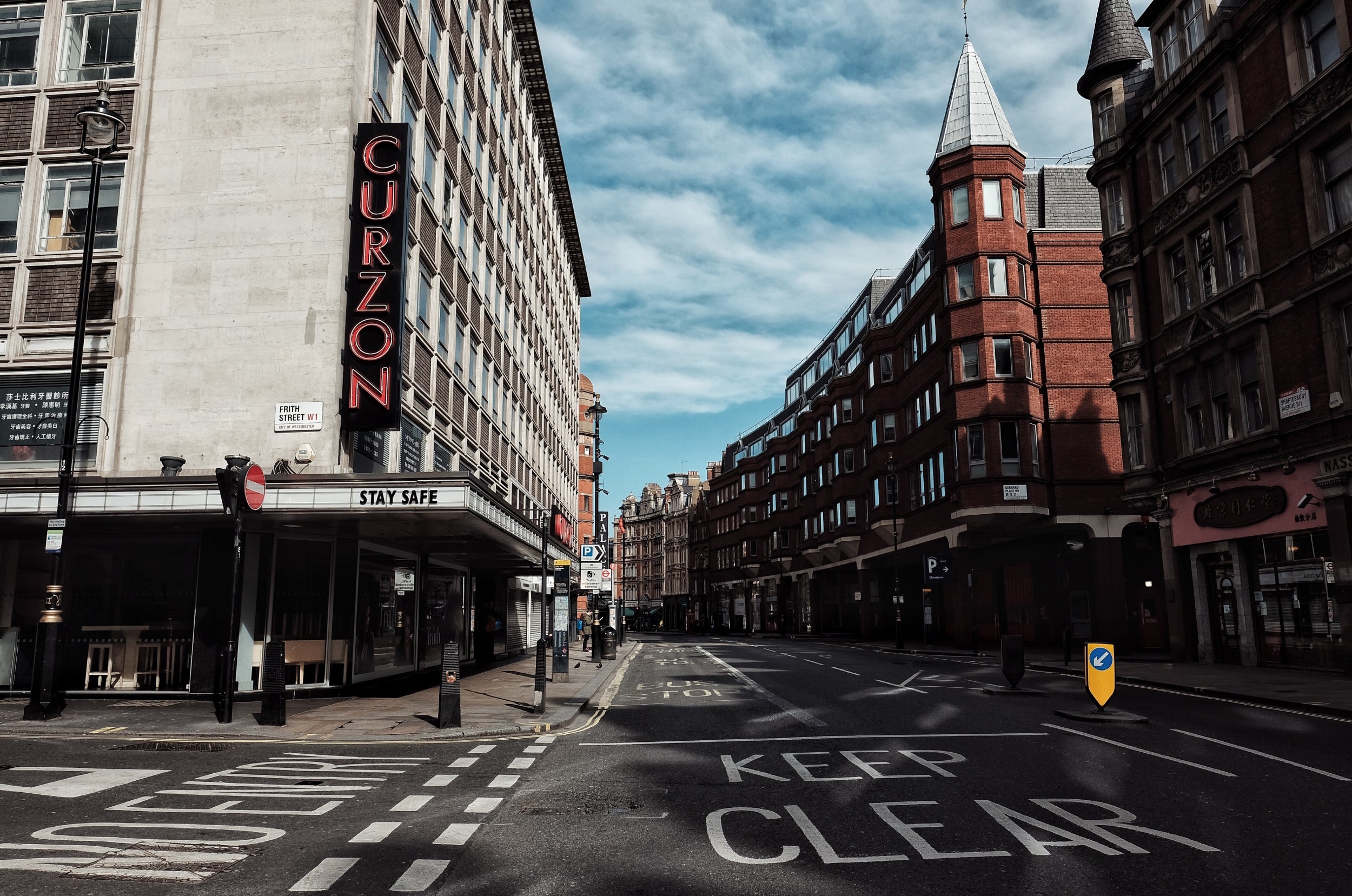
18/29
‘Stay Safe’ – Curzon cinemas are temporarily closed under the new measures
Angela Christofilou
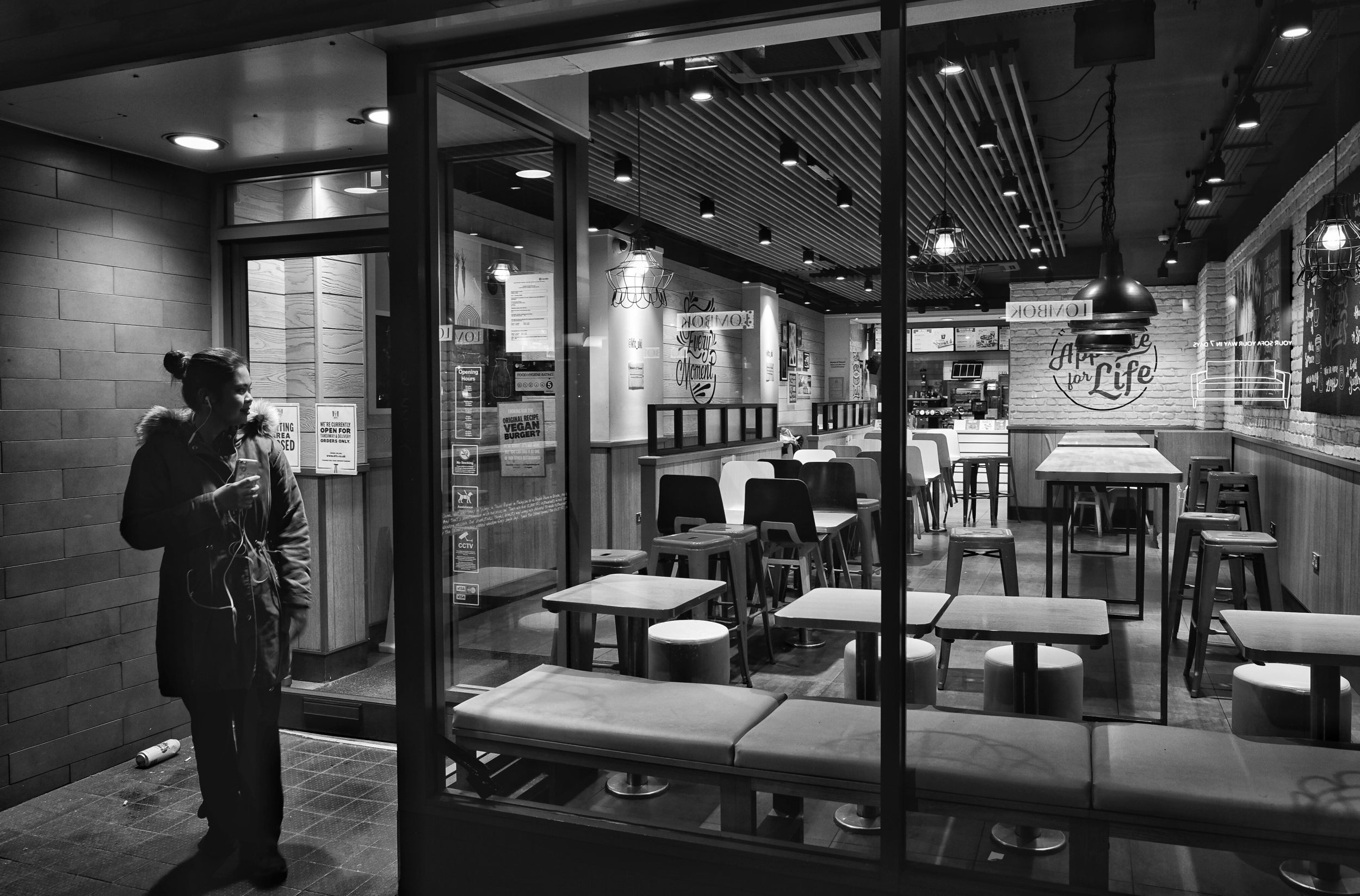
19/29
Pubs, restaurants and bars were ordered to shut as part of the lockdown
Angela Christofilou
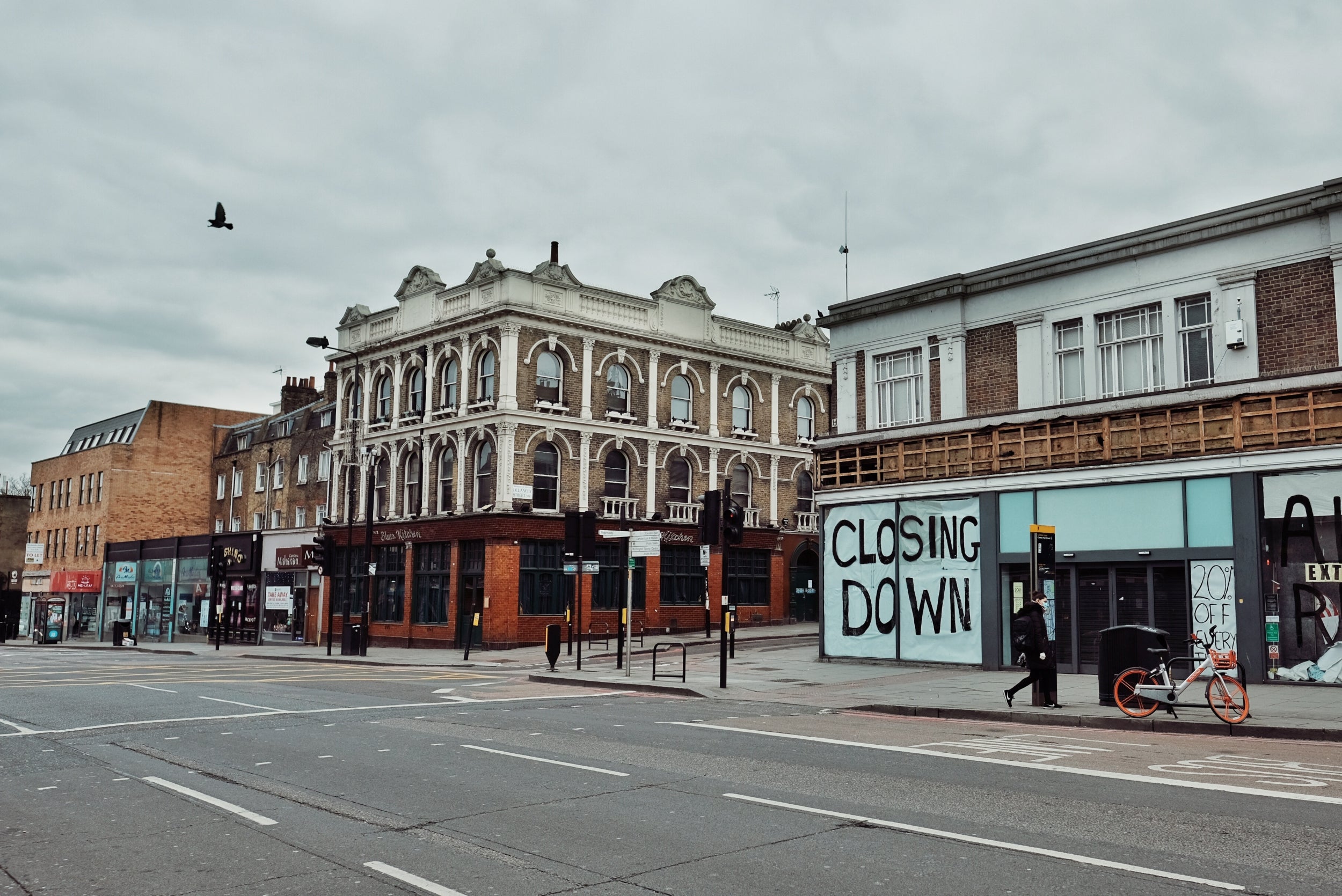
20/29 Camden High Street
There are fears that coronavirus could lead to permanent closure of struggling shops
Angela Christofilou
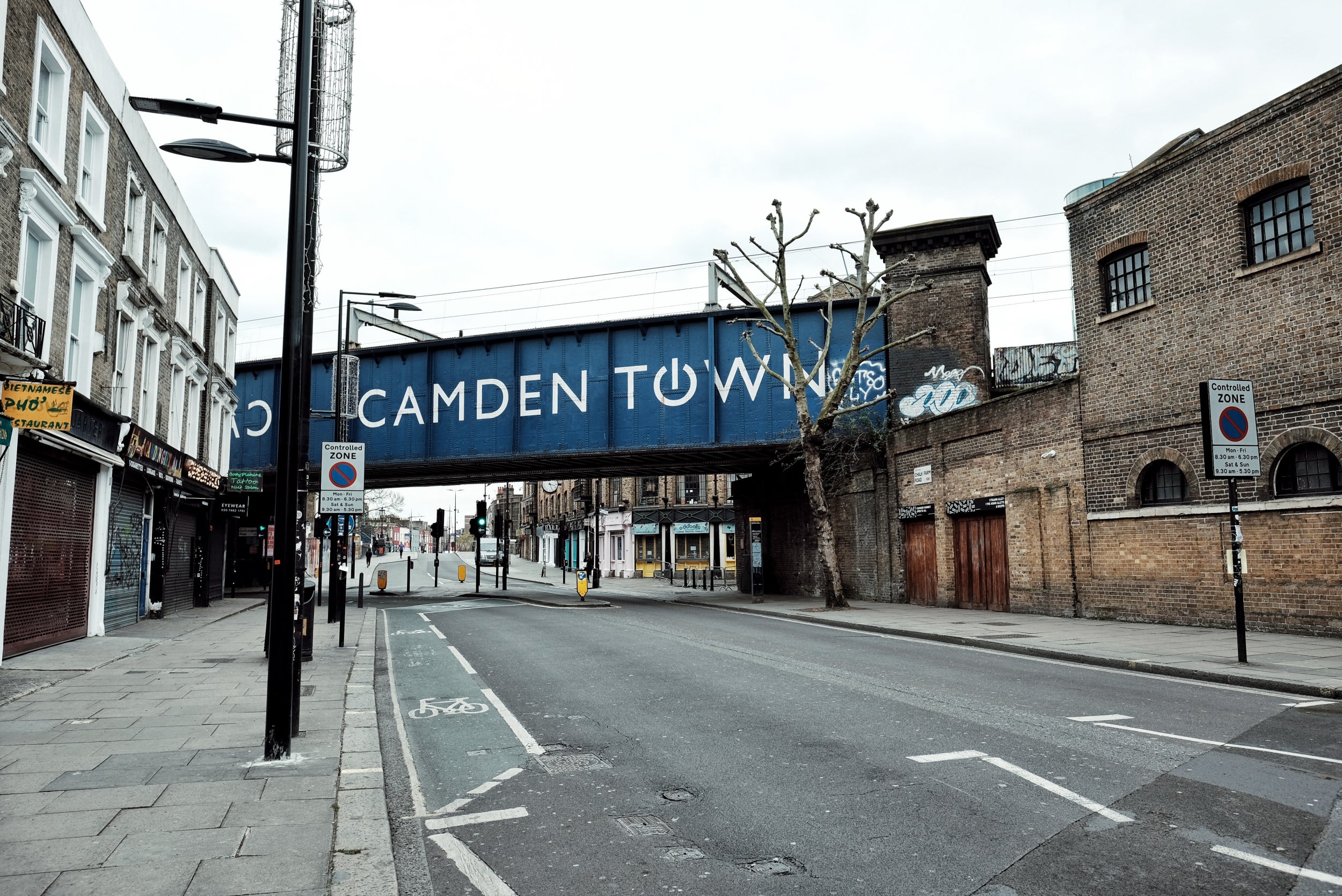
21/29
Camden Town is eerily silent on a normal working day
Angela Christofilou
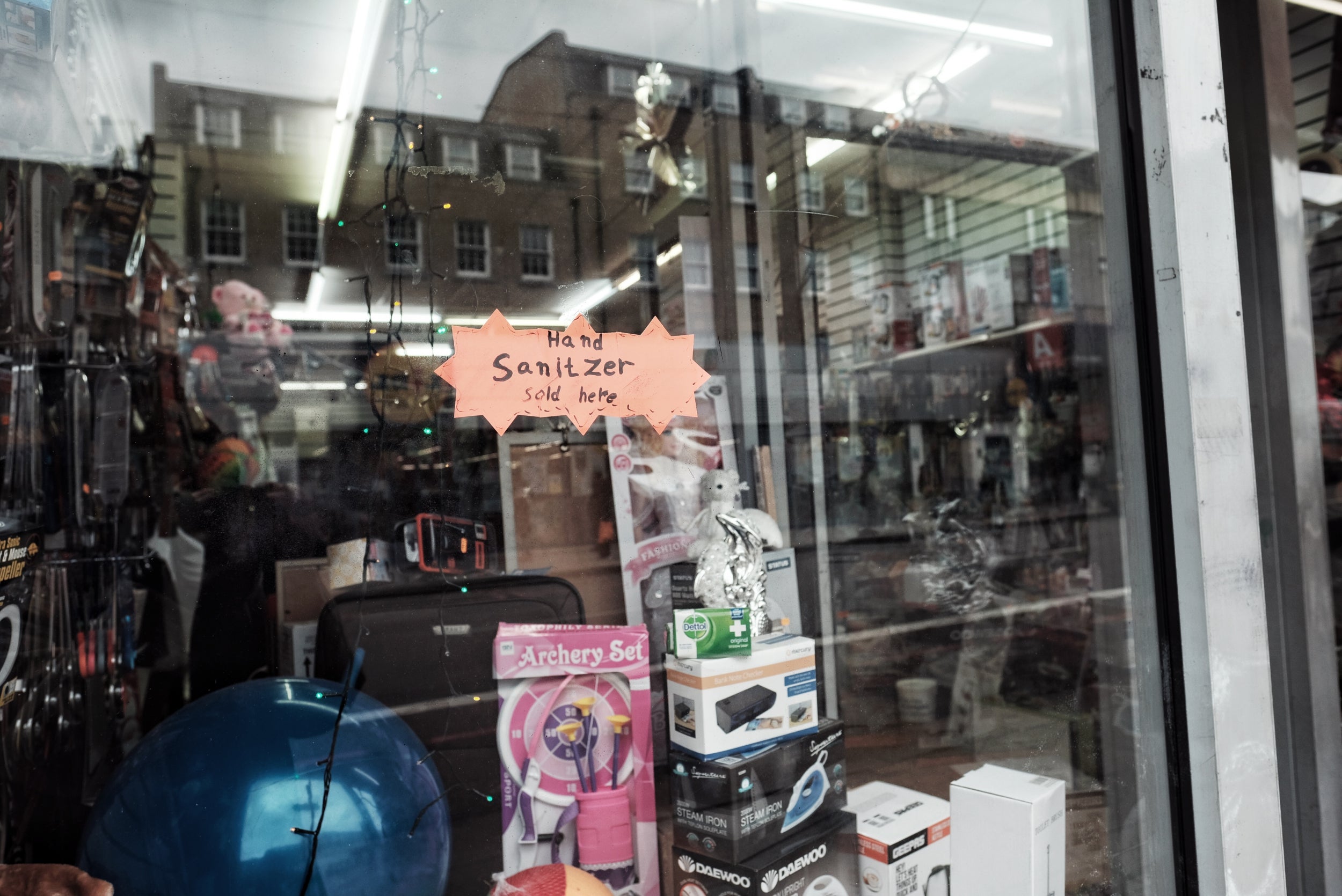
22/29
Shops and supermarkets ran out of hand sanitisers in the first week of the lockdown. As we approach the end of the second week most shops now have started to stock up
Angela Christofilou
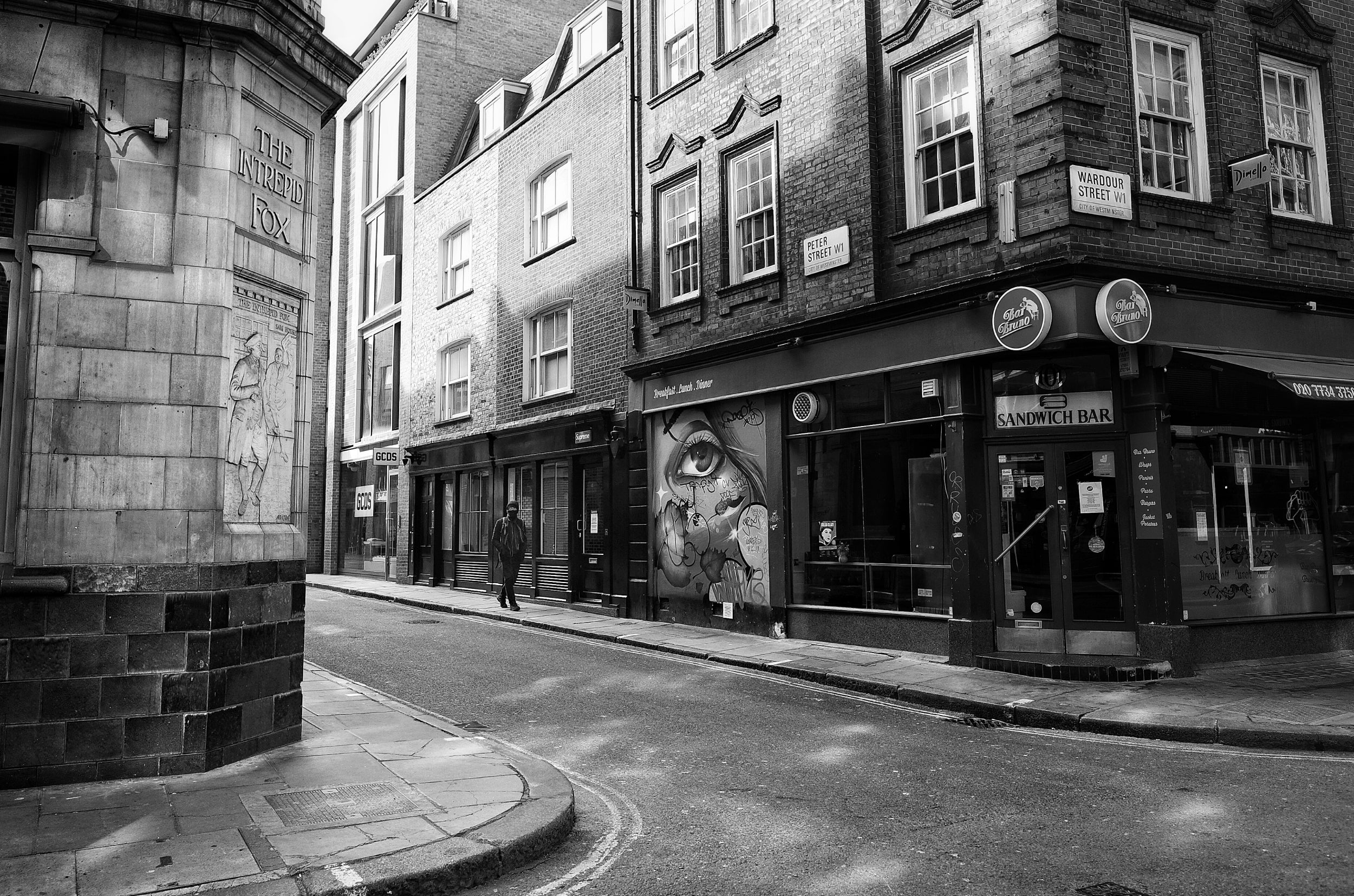
23/29
Empty streets around Soho
Angela Christofilou
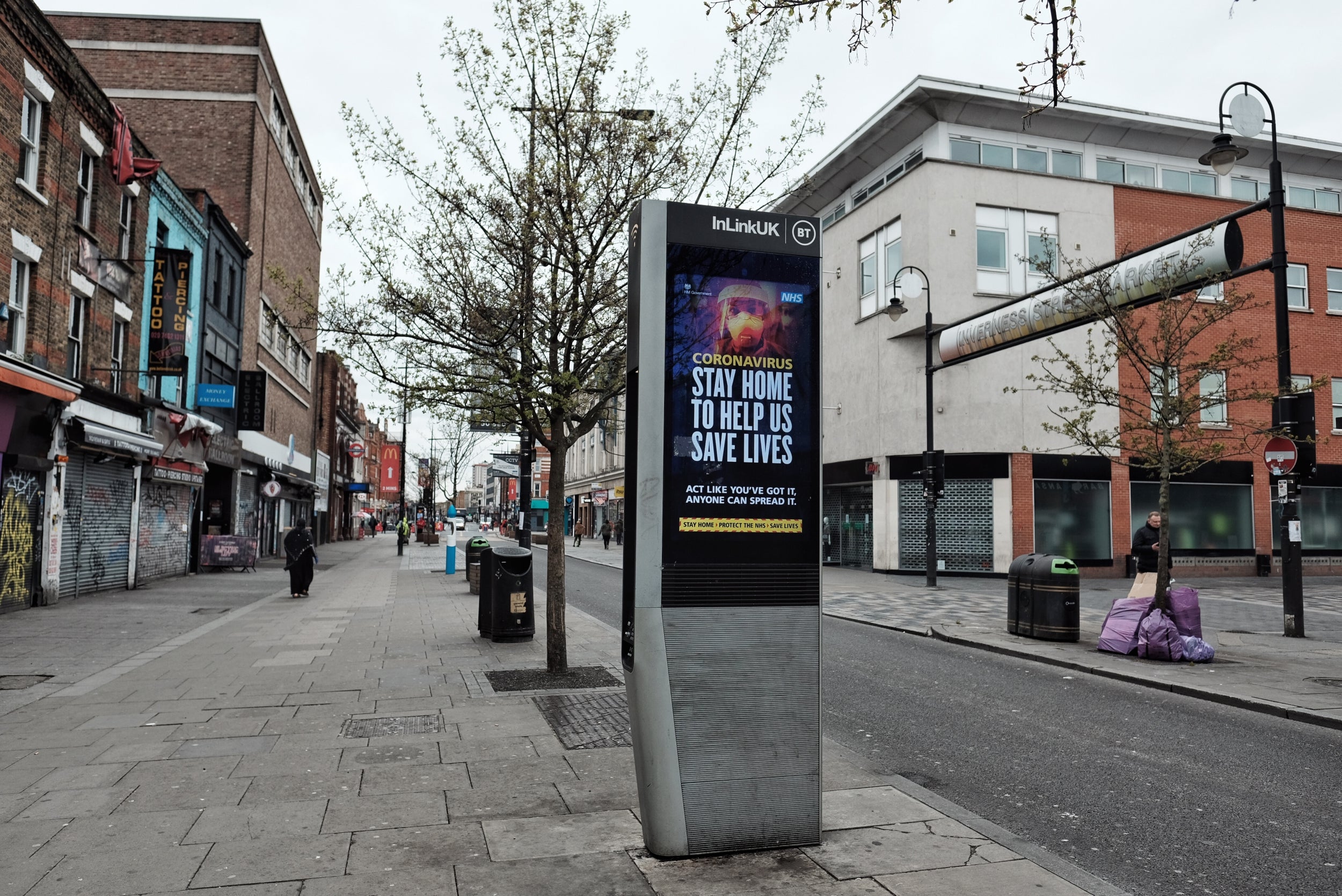
24/29
A noticeboard on Camden High Street urges the public to stay at home
Angela Christofilou
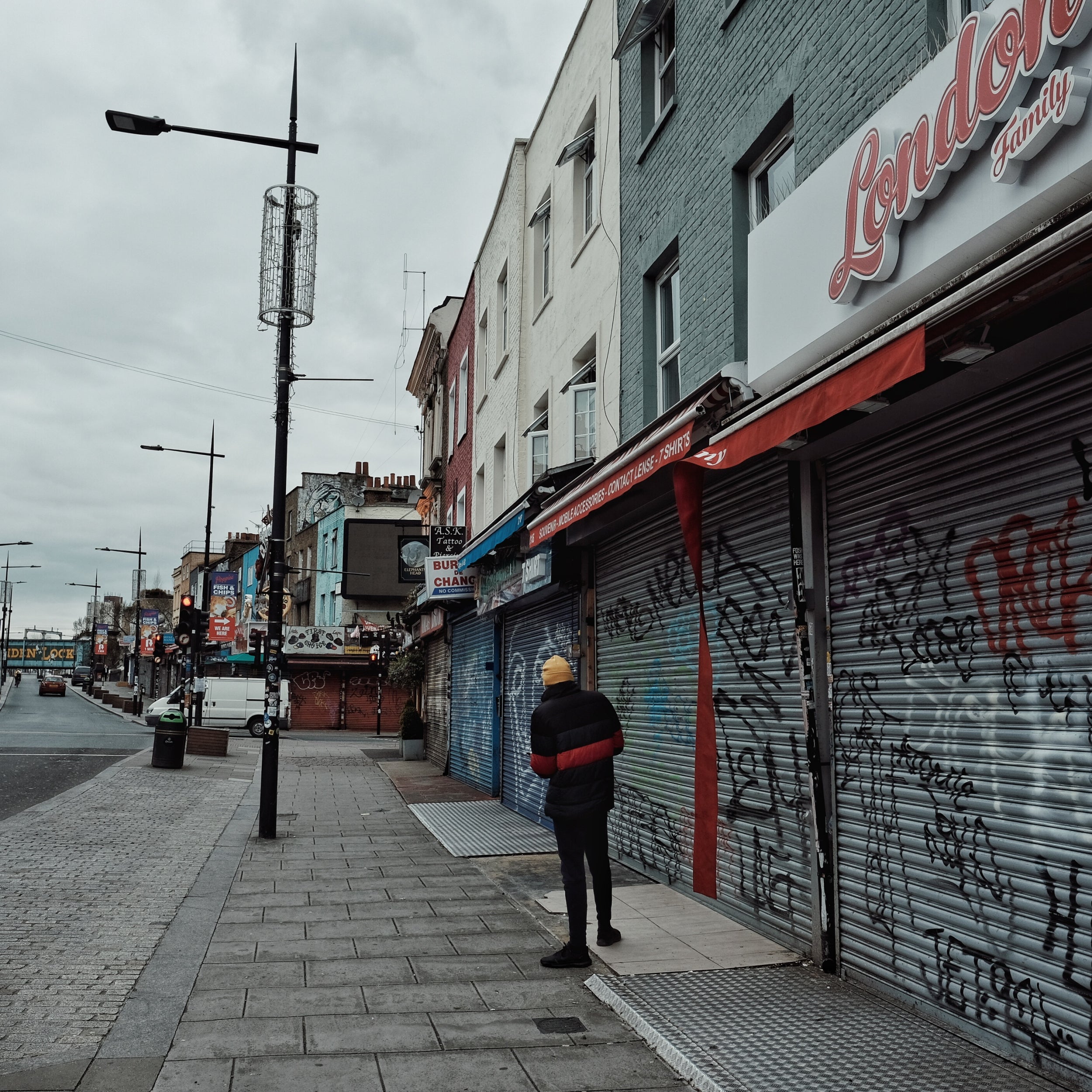
25/29
Camden High Street, one of London’s busiest tourist streets turns quiet
Angela Christofilou
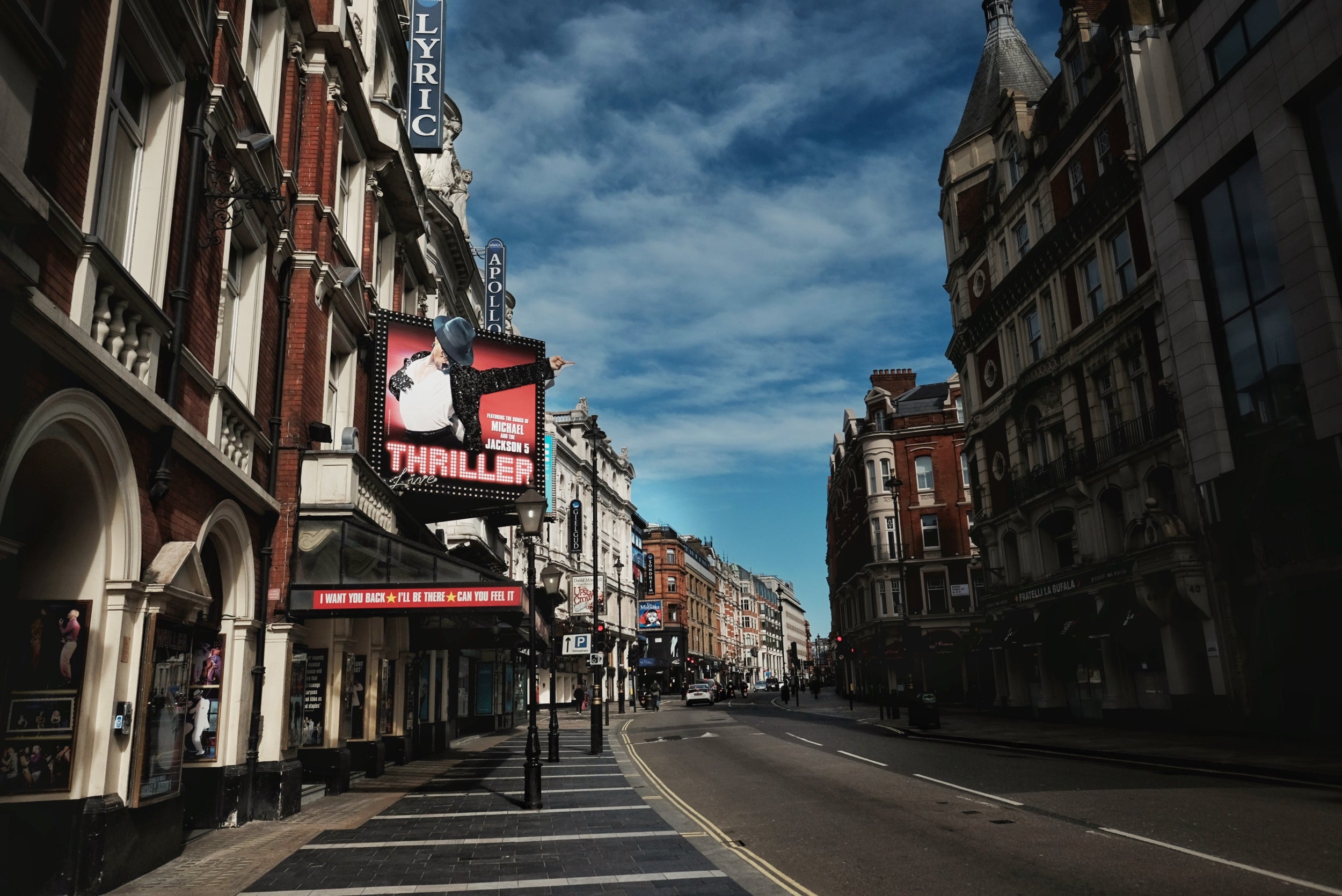
26/29
Thriller Live confirmed its West End run ended in the wake of the coronavirus outbreak
Angela Christofilou
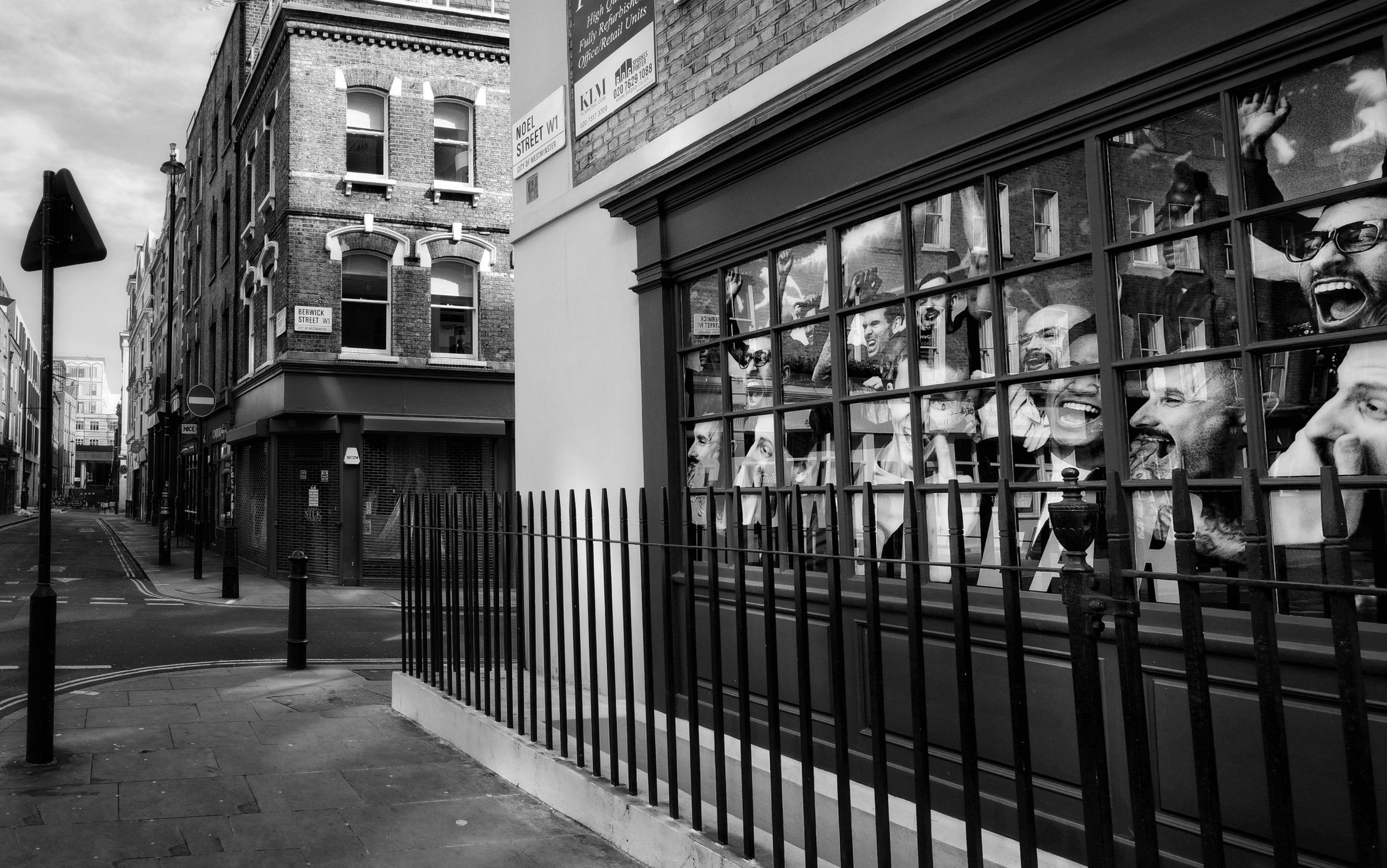
27/29
Empty and eerie Soho streets after stricter rules on social distancing announced
Angela Christofilou
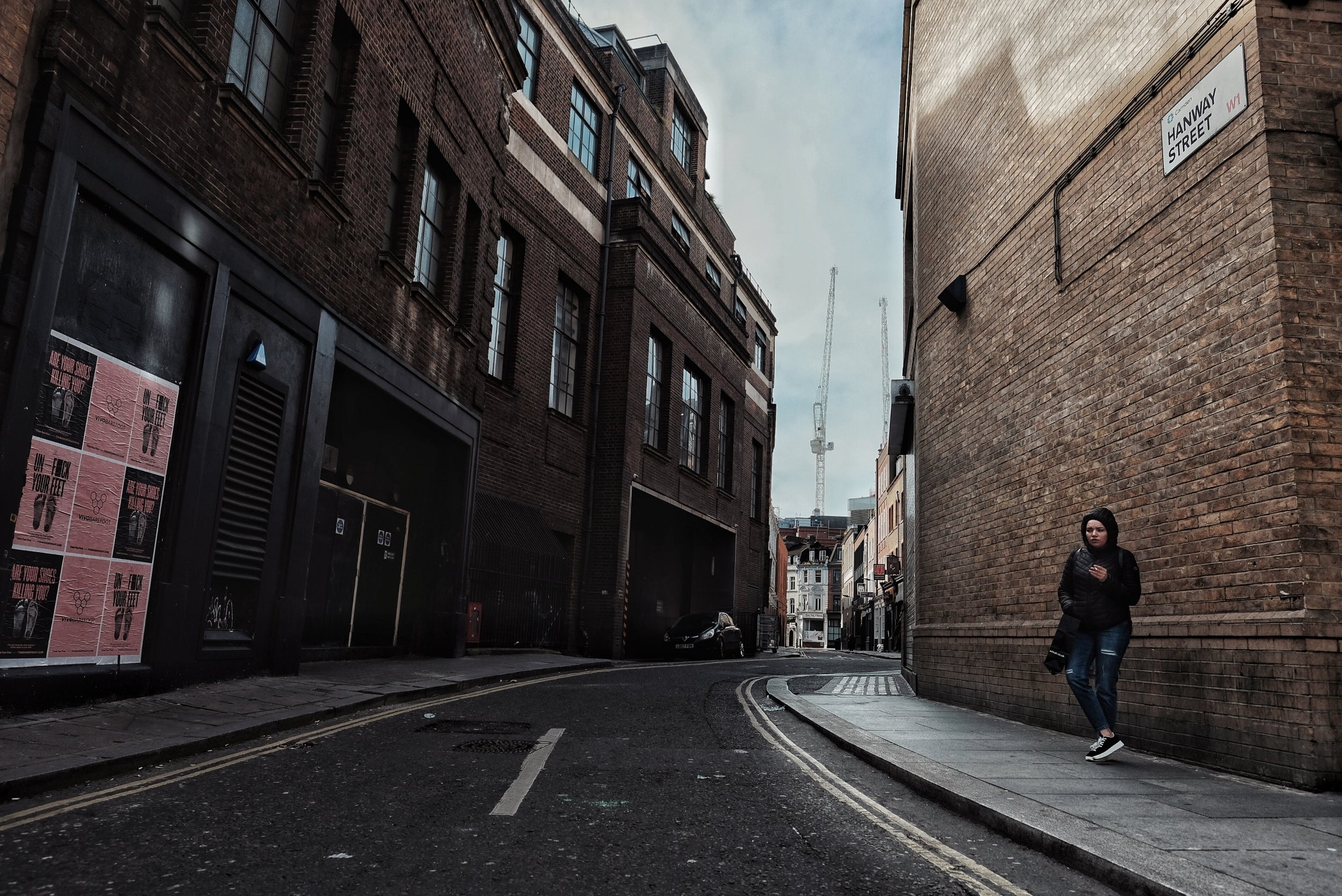
28/29
A woman pauses for a cigarette on Hanway Street, behind Tottenham Court Road
Angela Christofilou
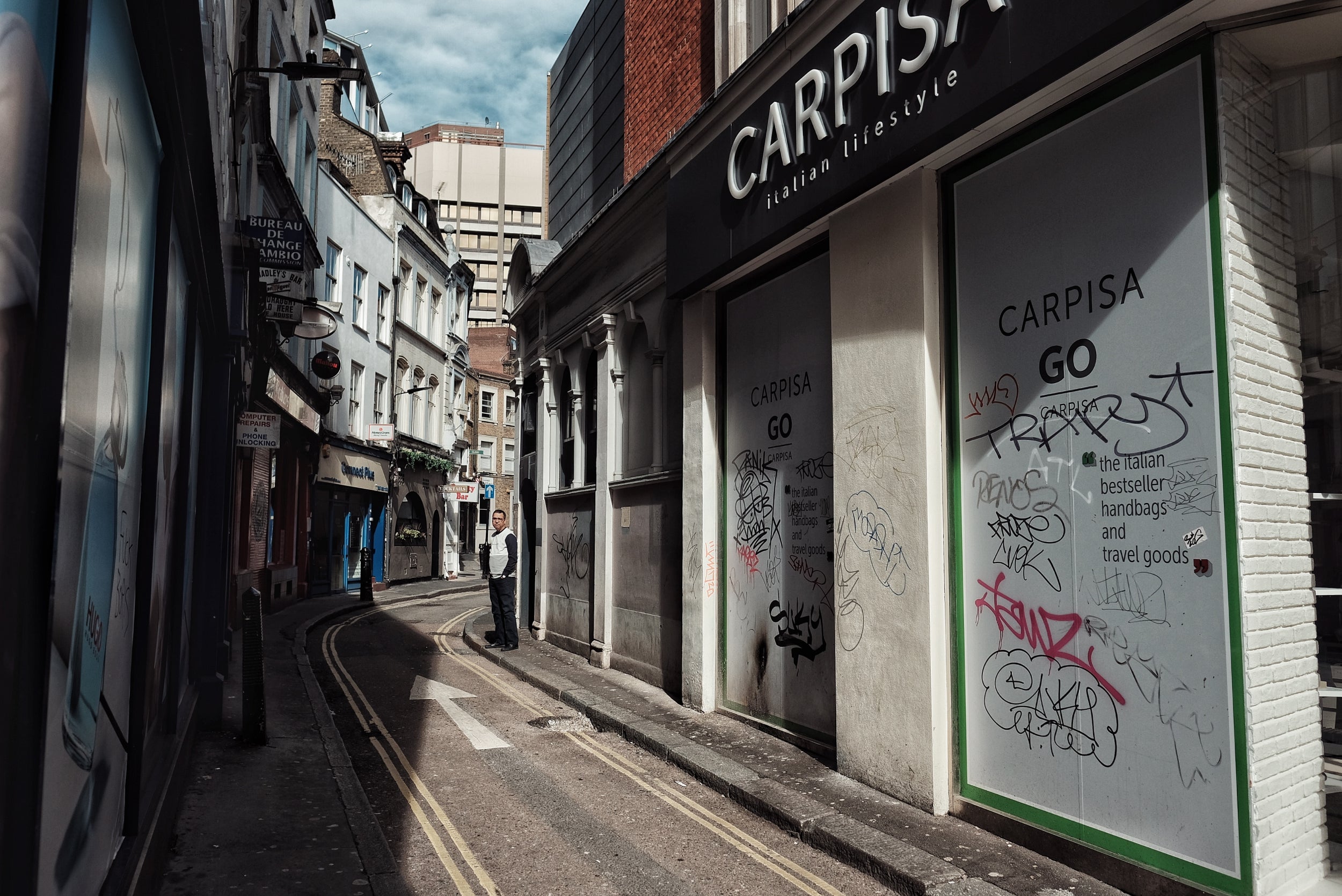
29/29
A man steps outside onto Hanway Street, that sits behind what is usually a bustling retail hub
Angela Christofilou

1/29
A man walks down a deserted Camden High Street
Photos Angela Christofilou

2/29
Goodge Street Station is one of the many stations closed to help reduce the spread
Angela Christofilou

3/29
An empty street in the heart of Chinatown
Angela Christofilou

4/29
People in masks in Chinatown a day after the lockdown
Angela Christofilou

5/29
A near-empty Piccadilly Circus during the first week of lockdown
Angela Christofilou

6/29
Sonja, my neighbour, who I photographed while taking a short walk. It was nice to briefly chat even from a distance
Angela Christofilou

7/29
A couple sit on the empty steps of the statue Eros in Piccadilly Circus
Angela Christofilou

8/29
Making sure I stay two-meters apart – D’Arblay Street, Soho
Angela Christofilou

9/29
A mannequin behind a shop window. UK stores have closed until further notice
Angela Christofilou

10/29
A notice displayed on a shop window in Camden
Angela Christofilou

11/29
As part of the lockdown, all non-essential shops have been ordered to close.Image from Camden High Street
Angela Christofilou

12/29
A skateboarder wearing a mask utilises his exercise allowance in the Camden area
Angela Christofilou

13/29
Communities have been coming together in a time of need
Angela Christofilou

14/29
A woman stands alone in a deserted Oxford Street. Up until a few weeks ago, on average, half a million people visited the street per day
Angela Christofilou

15/29
A couple walk hand in hand down a street in Soho, a day before the stricter lockdown was announced
Angela Christofilou

16/29
During the first week of March, shoppers focused on stockpiling necessities ahead of a countrywide lockdown
Angela Christofilou

17/29
Many supermarkers are operating a queuing system to make sure only a limited amount of customers are allowed in at anyone time
Angela Christofilou

18/29
‘Stay Safe’ – Curzon cinemas are temporarily closed under the new measures
Angela Christofilou

19/29
Pubs, restaurants and bars were ordered to shut as part of the lockdown
Angela Christofilou

20/29 Camden High Street
There are fears that coronavirus could lead to permanent closure of struggling shops
Angela Christofilou

21/29
Camden Town is eerily silent on a normal working day
Angela Christofilou

22/29
Shops and supermarkets ran out of hand sanitisers in the first week of the lockdown. As we approach the end of the second week most shops now have started to stock up
Angela Christofilou

23/29
Empty streets around Soho
Angela Christofilou

24/29
A noticeboard on Camden High Street urges the public to stay at home
Angela Christofilou

25/29
Camden High Street, one of London’s busiest tourist streets turns quiet
Angela Christofilou

26/29
Thriller Live confirmed its West End run ended in the wake of the coronavirus outbreak
Angela Christofilou

27/29
Empty and eerie Soho streets after stricter rules on social distancing announced
Angela Christofilou

28/29
A woman pauses for a cigarette on Hanway Street, behind Tottenham Court Road
Angela Christofilou

29/29
A man steps outside onto Hanway Street, that sits behind what is usually a bustling retail hub
Angela Christofilou
Mr Raab insisted he was empowered to take major decisions on issues such as lifting the lockdown while Mr Johnson remains in hospital suffering from coronavirus.
In a bullish response to questions about his role as de-facto deputy, Mr Raab insisted: “I’ve got all the authority I need to make the relevant decisions – whether it’s through chairing cabinet updates, chairing Cobra, or indeed the morning meetings of senior ministers.”
The prime minister’s condition continues to improve and he is in “good spirits” after three nights in intensive care, his spokesperson said.
Elsewhere, Priti Patel, the home secretary, told Talkradio it was clear last Tuesday, five days before he went to hospital, that Mr Johnson was “quite frankly unwell” and needed “rest and recuperation”.
In her first public appearance following accusations she was avoiding public scrutiny, Ms Patel also said ministers were “absolutely not” considering stricter measures.
Meanwhile, a new study found many people are struggling with life under lockdown, with 38 per cent sleeping less or less well than normal, and 35 per cent saying they were eating more food or less healthy food than normal.
Half of people (49 per cent) said they have felt more anxious or depressed than normal, while one in five (22 per cent) said they already cannot afford essential items or housing costs, or that they are certain or very likely to struggle during the crisis.
Despite these results, nearly nine out of 10 people (89 per cent) support the lockdown measures.
Interviews of 2,250 UK residents, aged 18 to 75, were carried out by Ipsos Mori on behalf of King’s College London between 1 April and 3 April.


